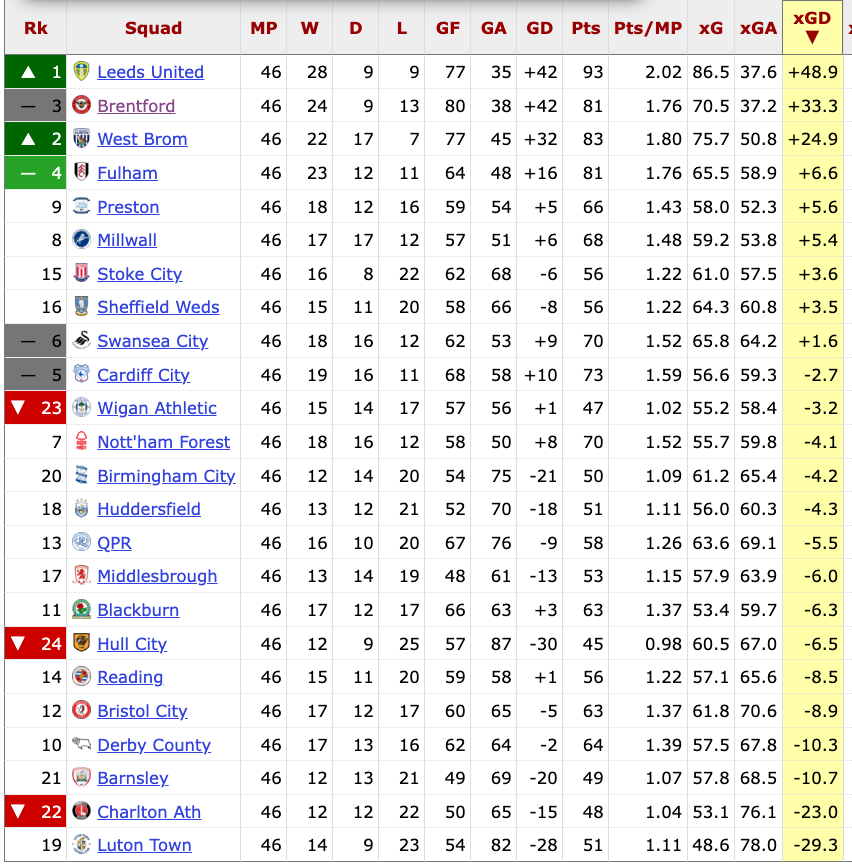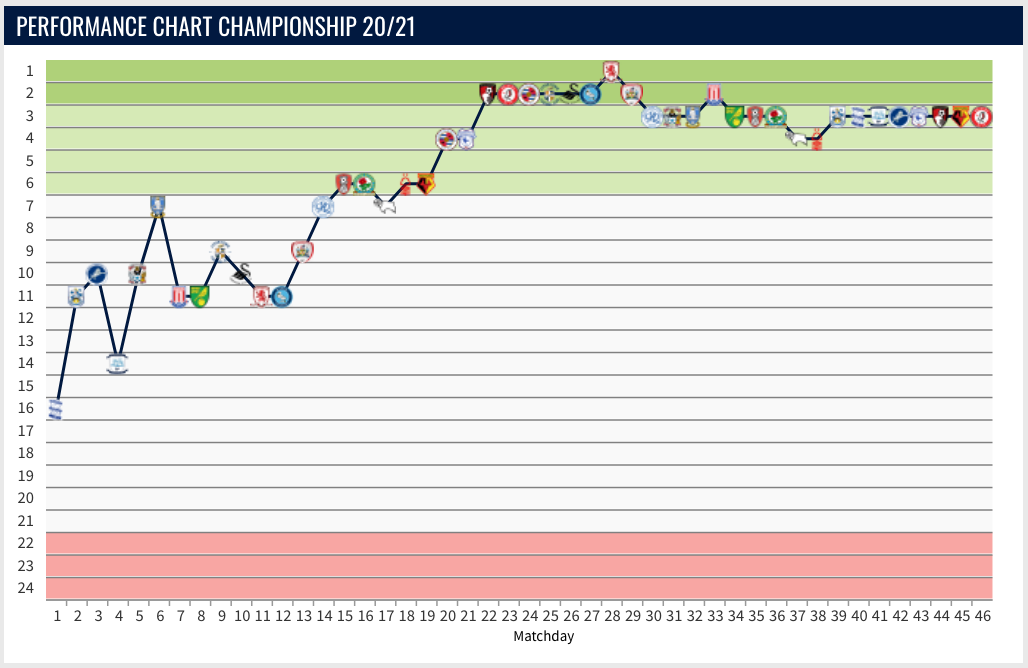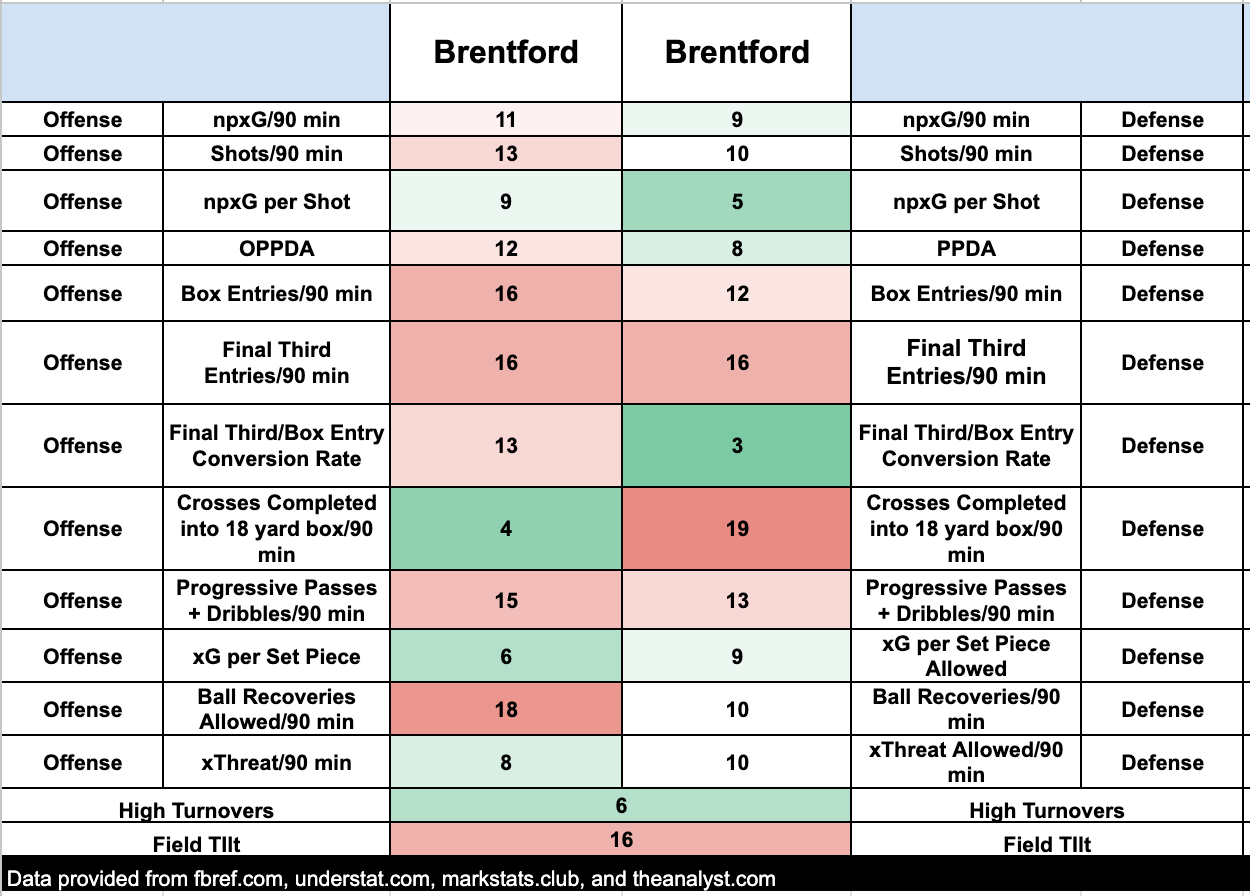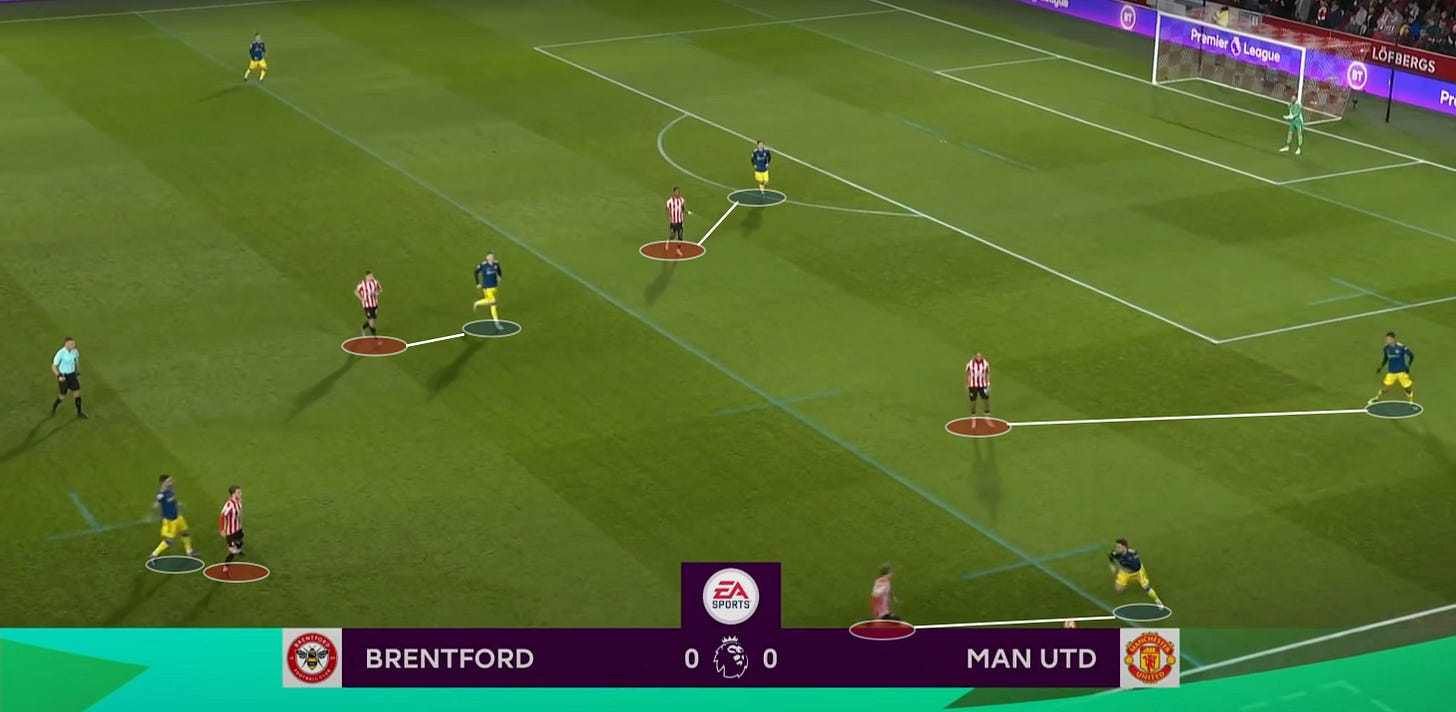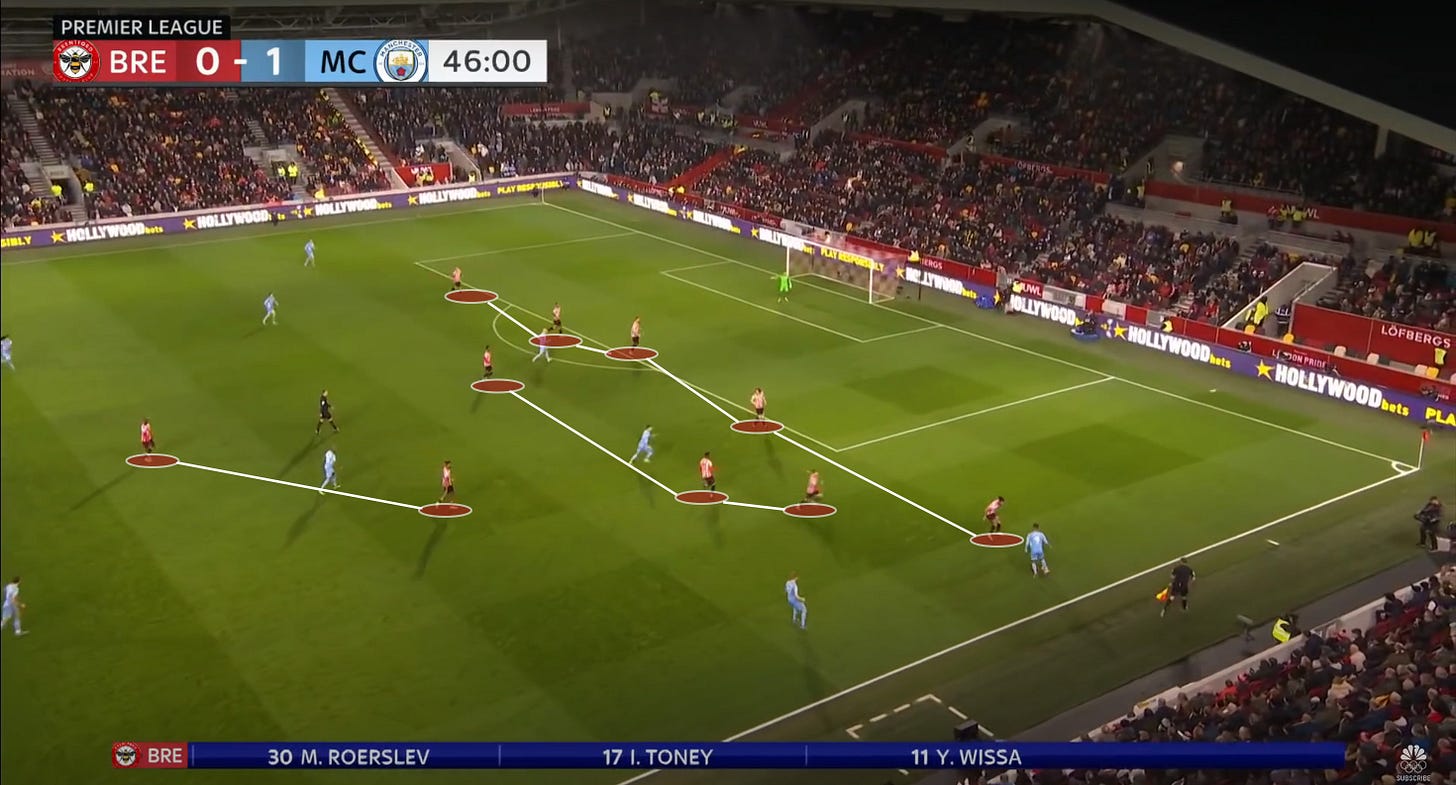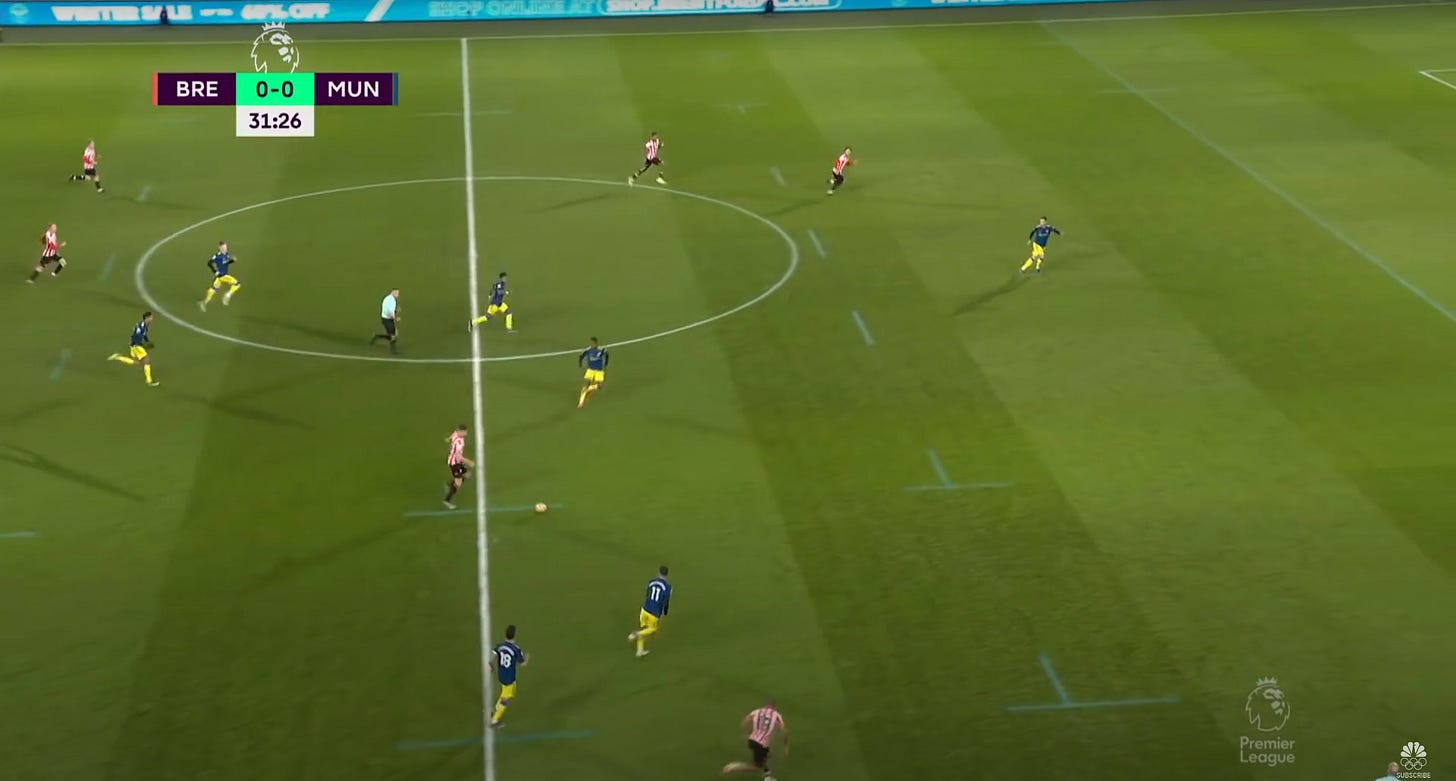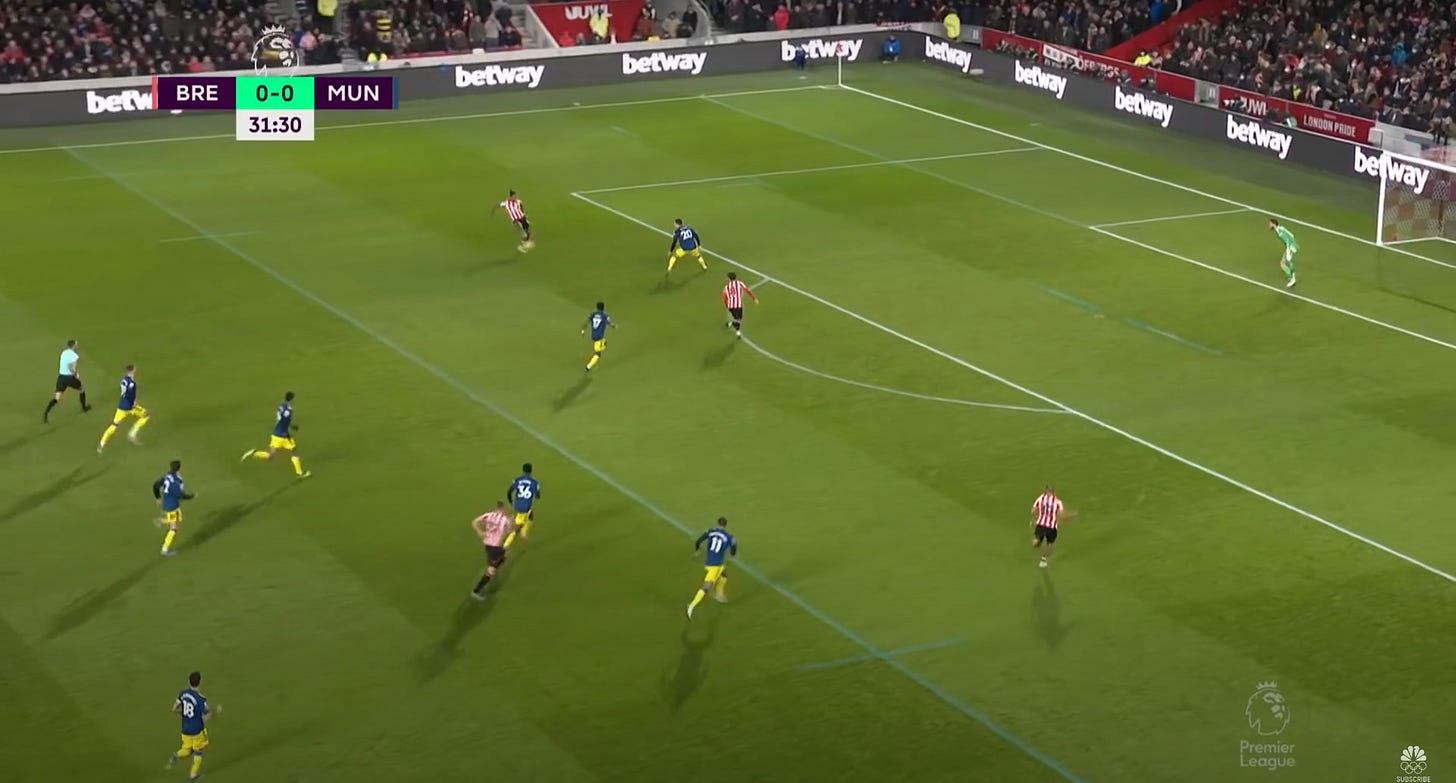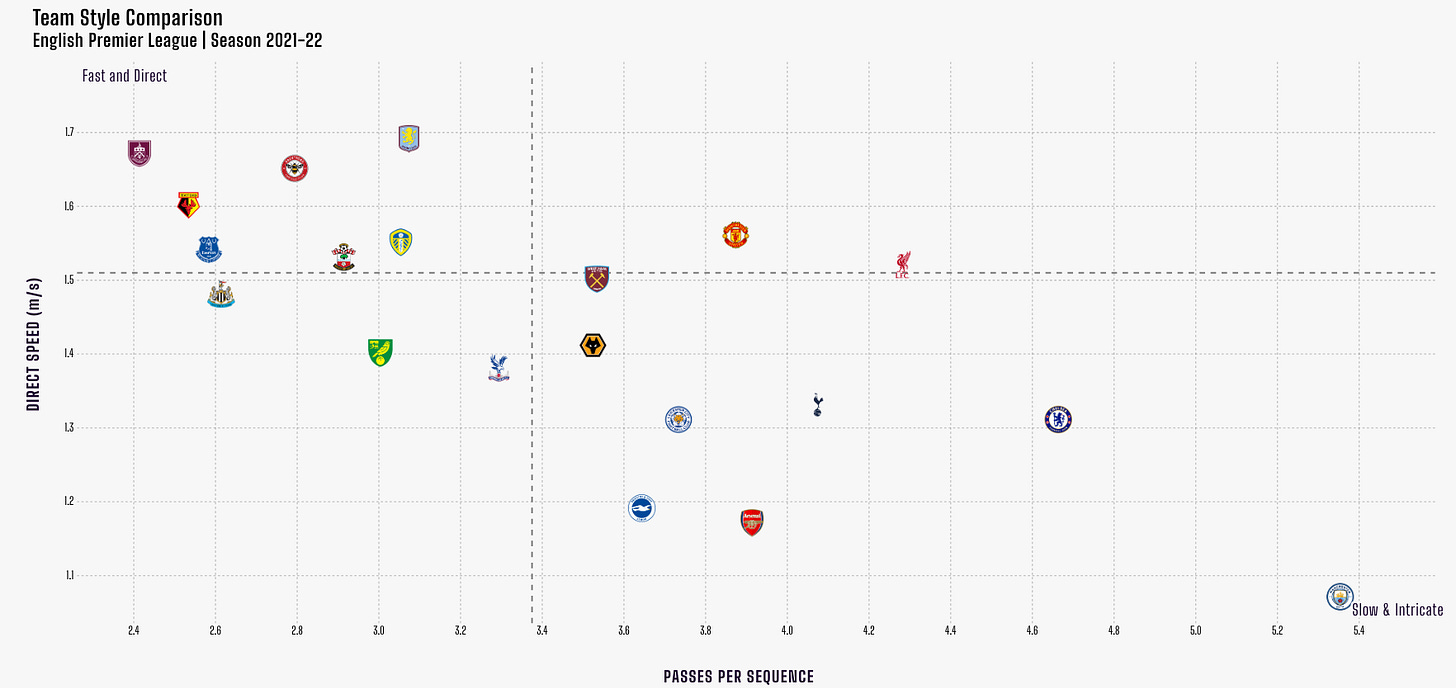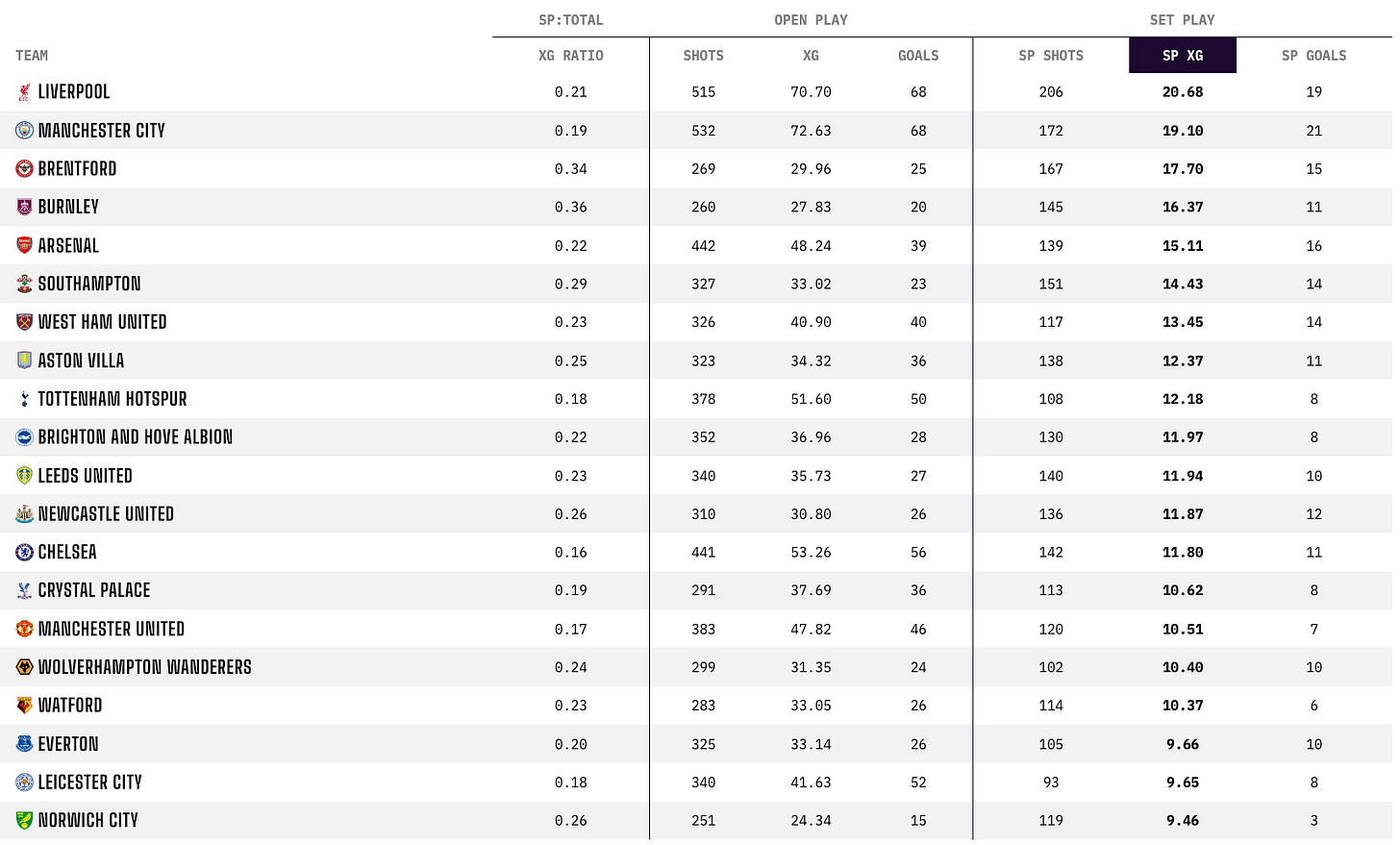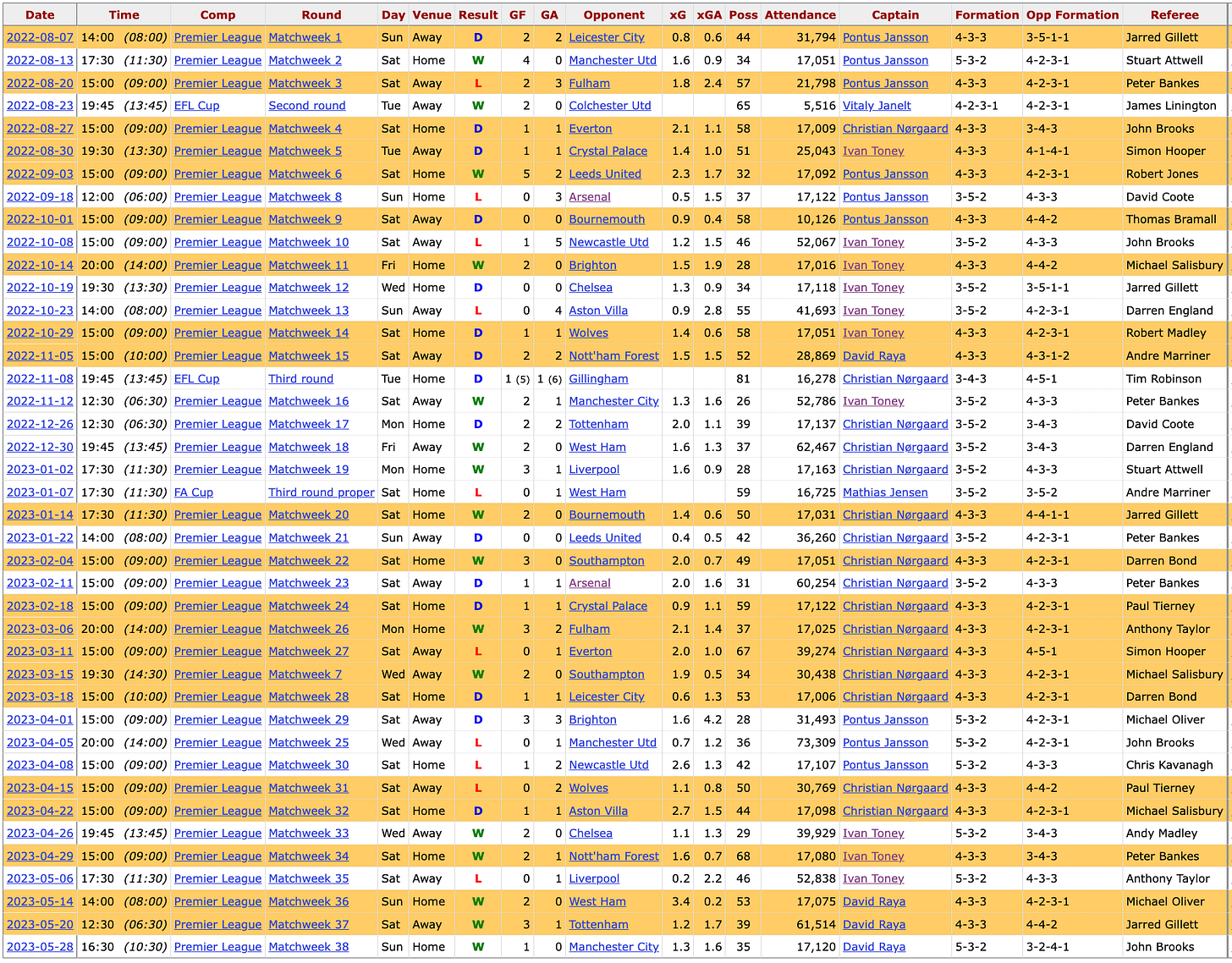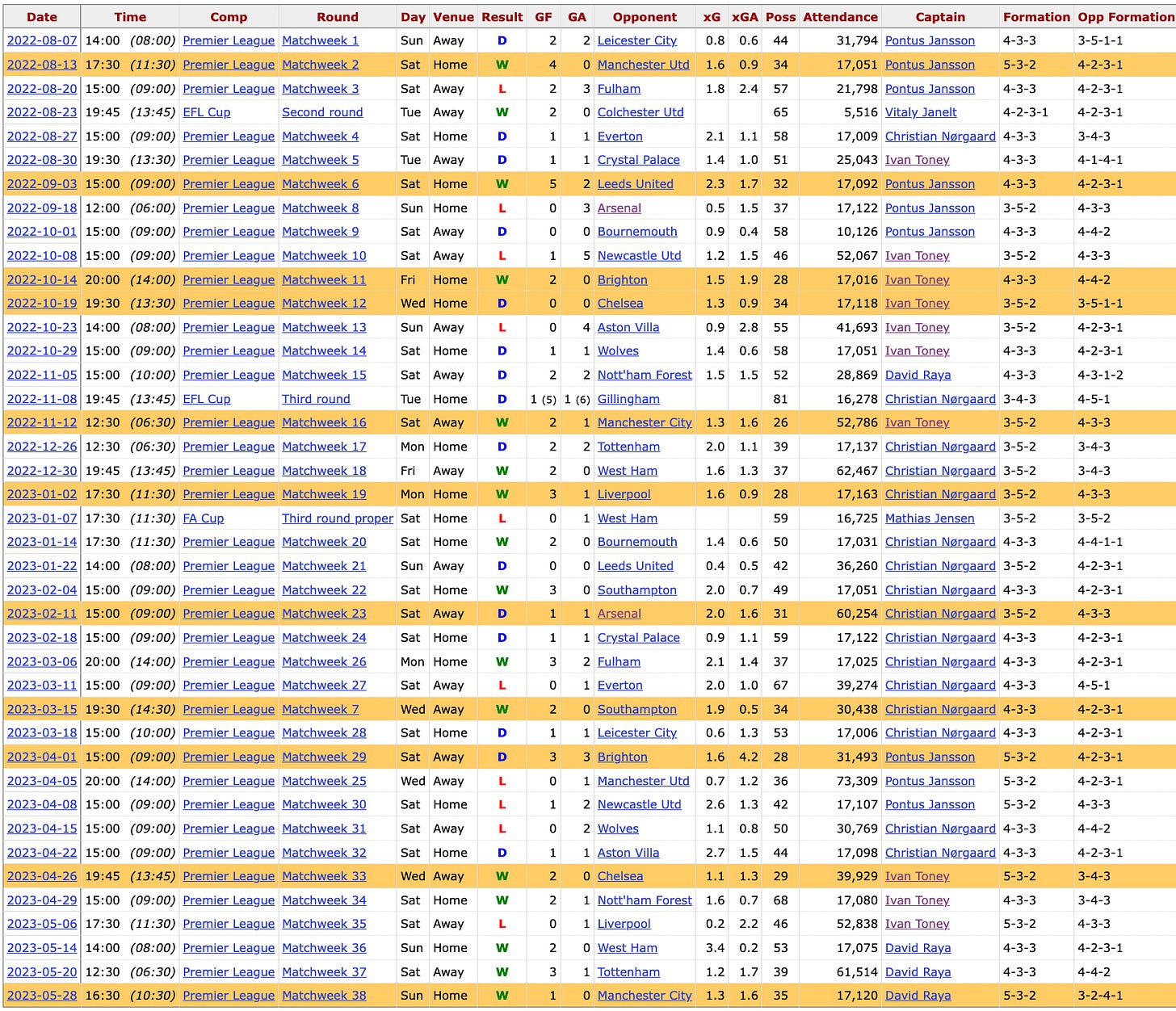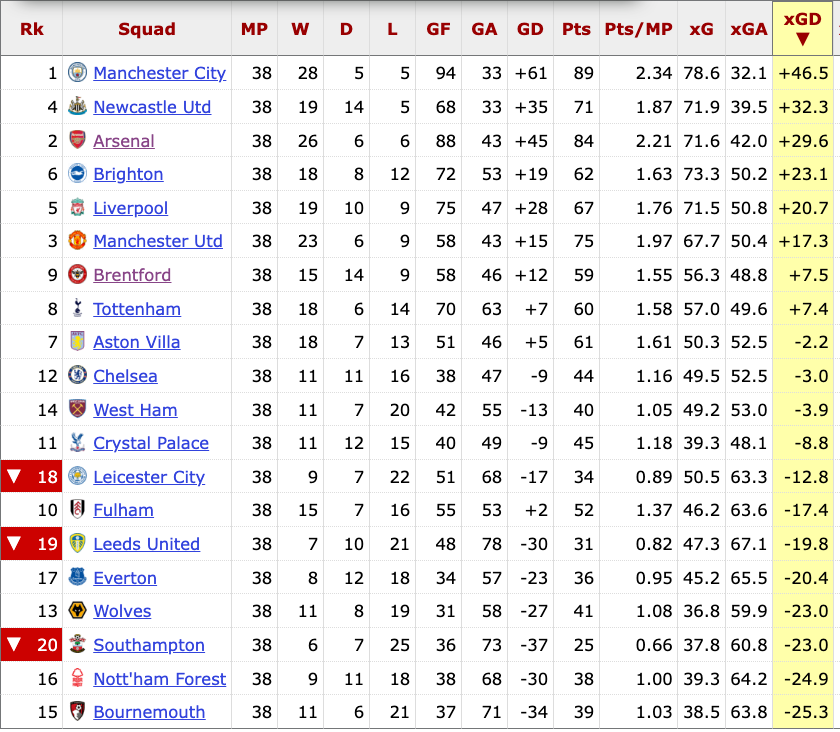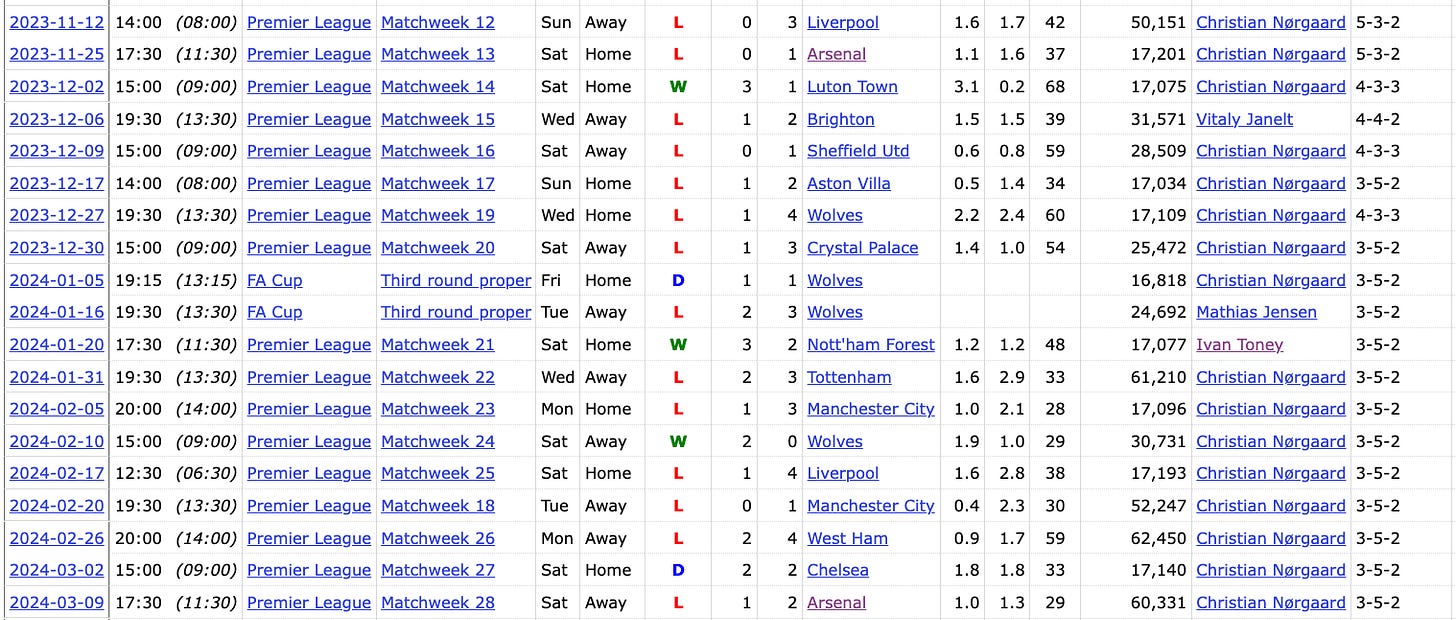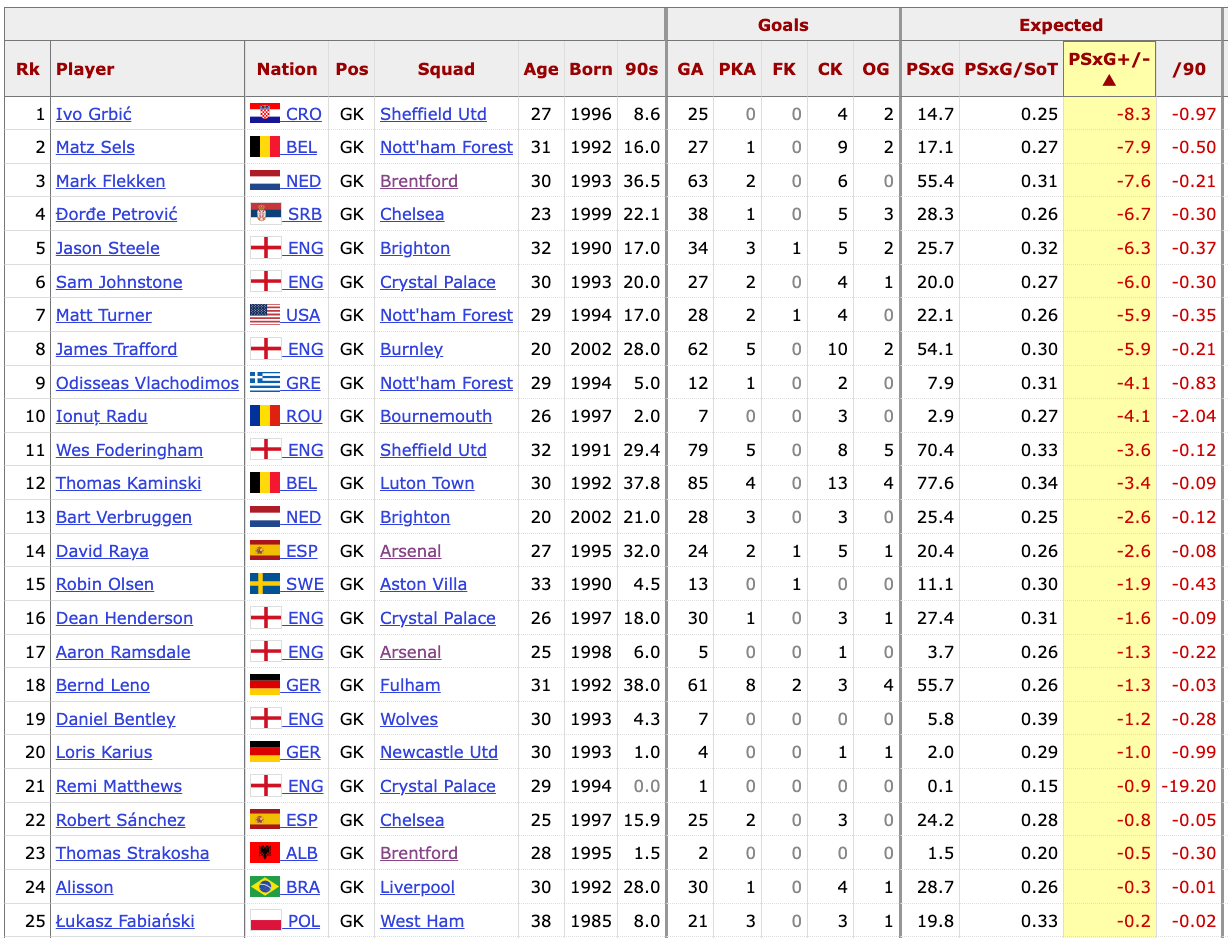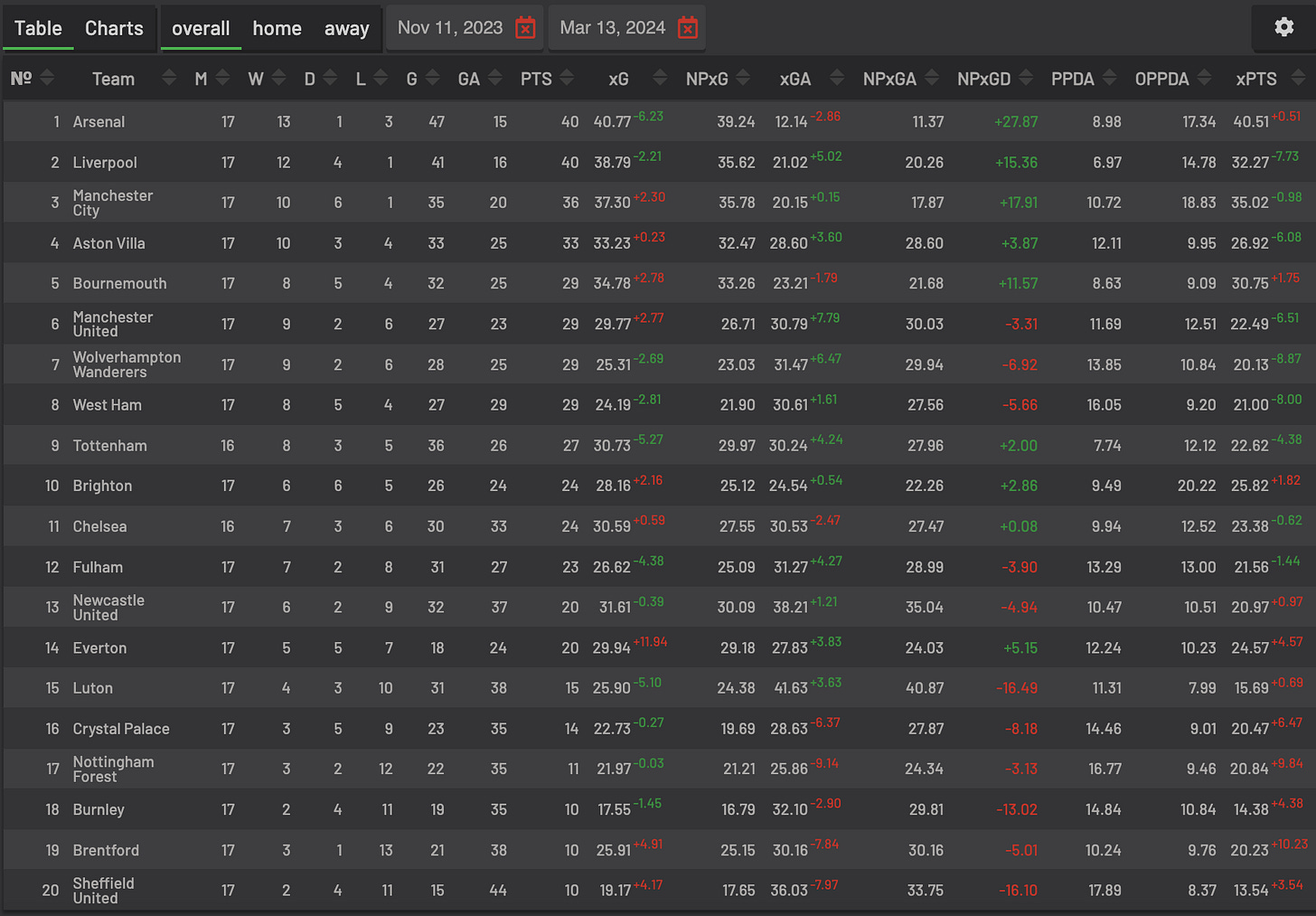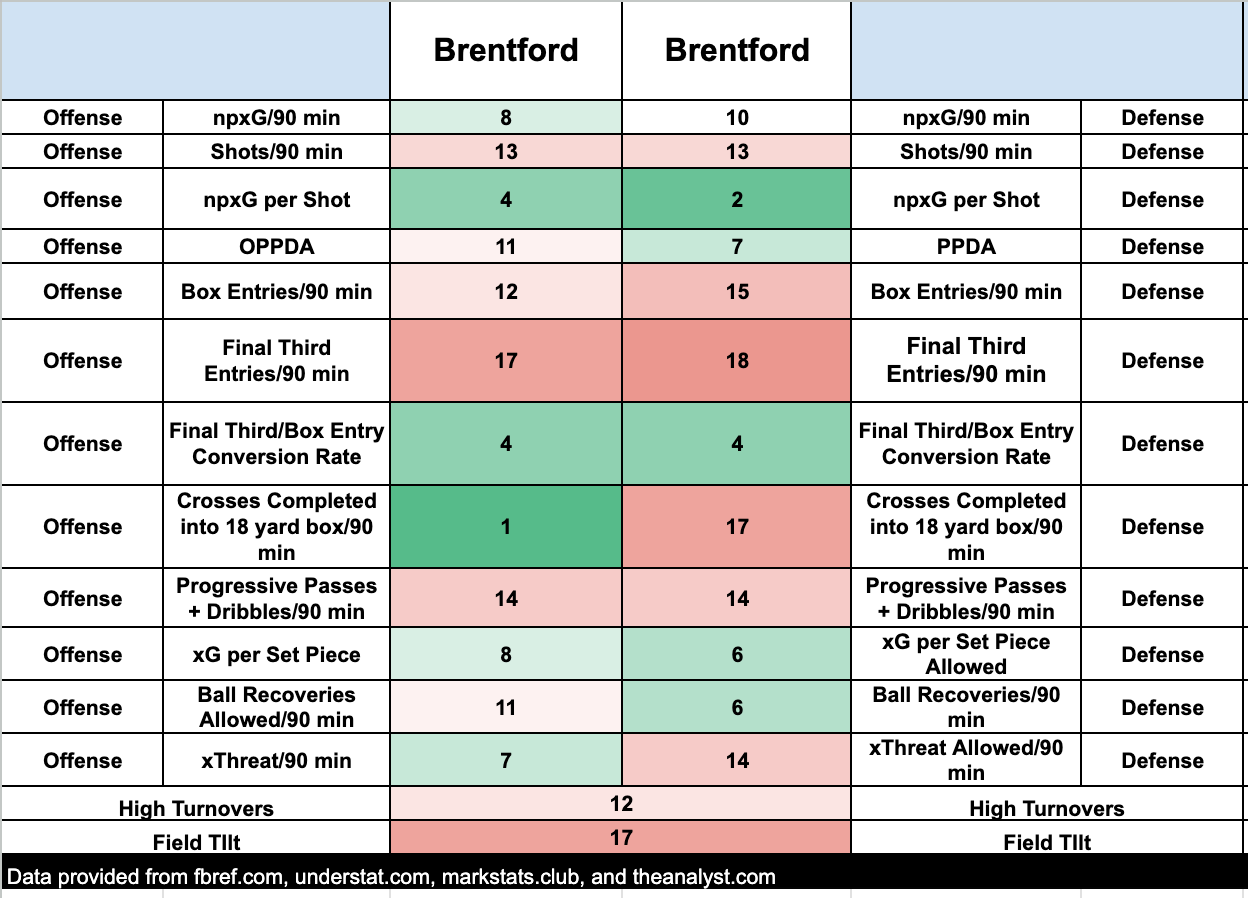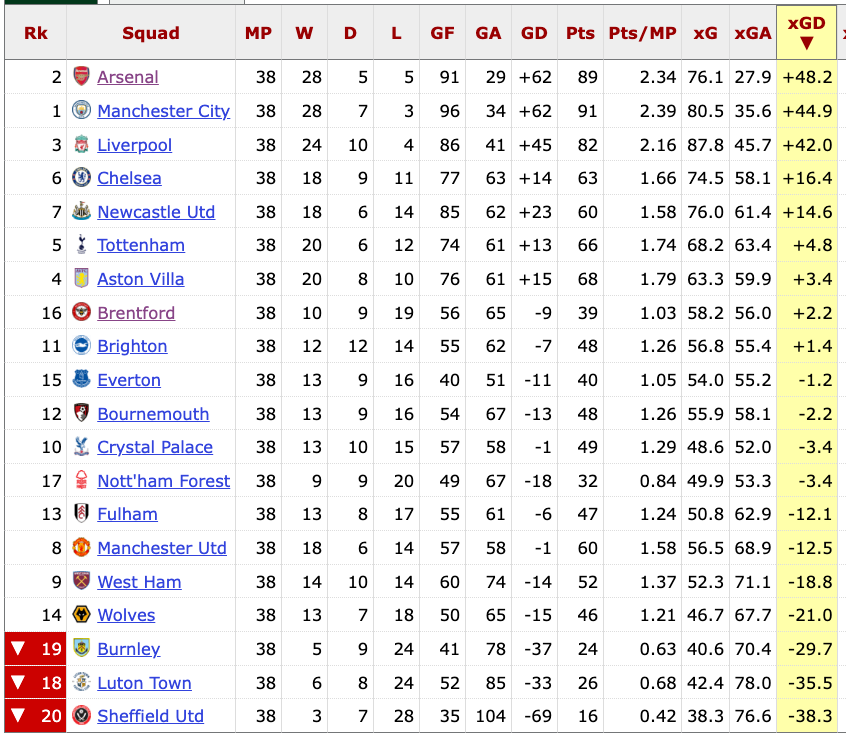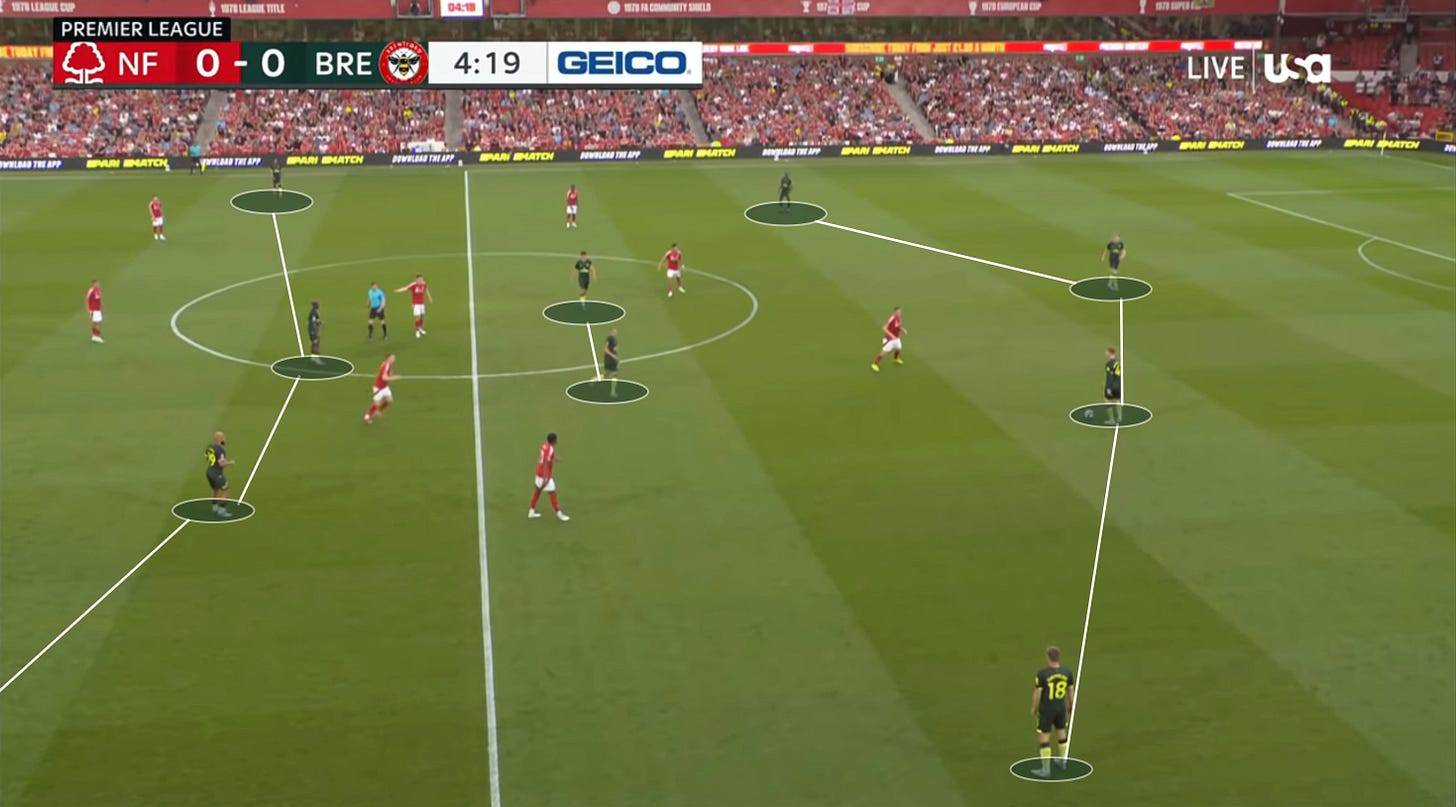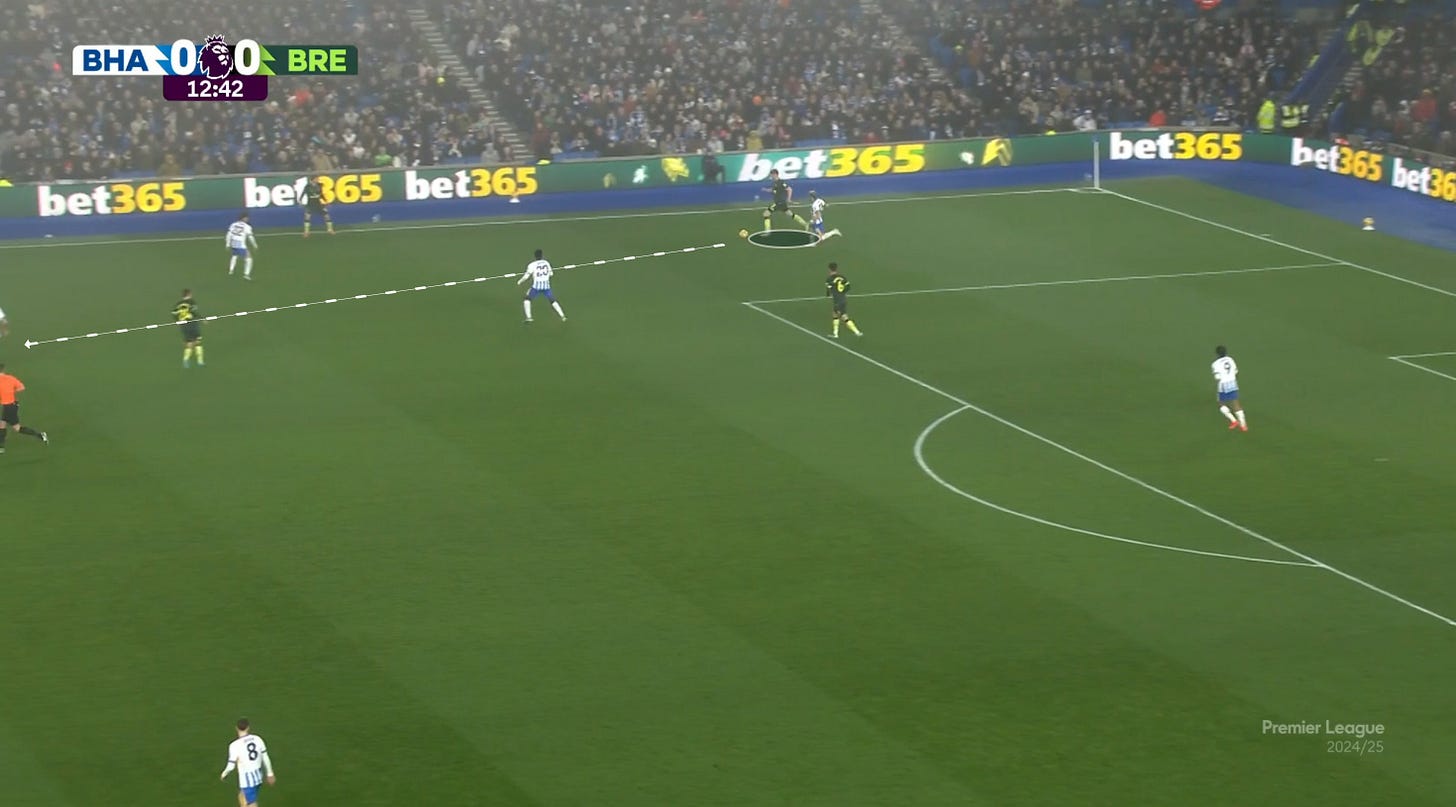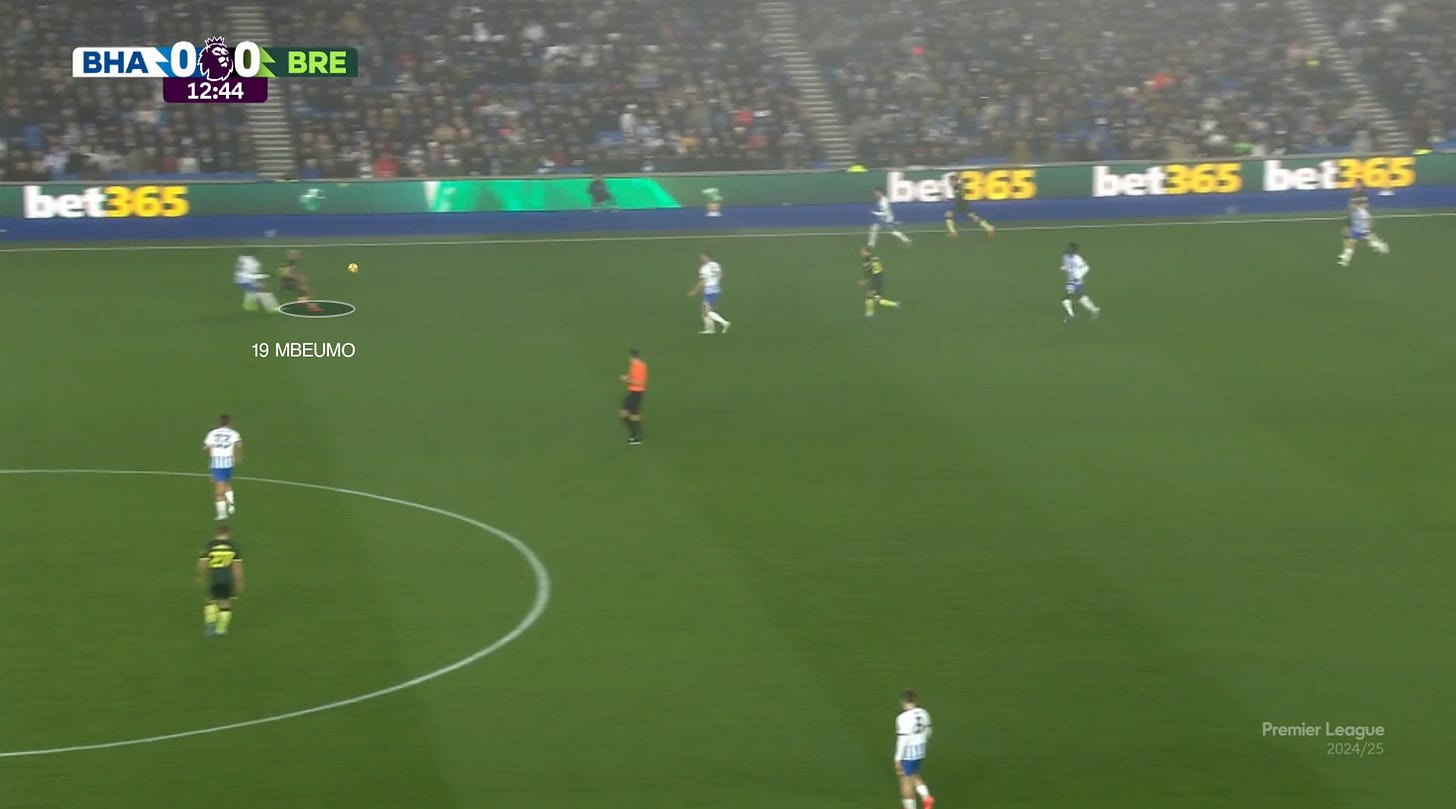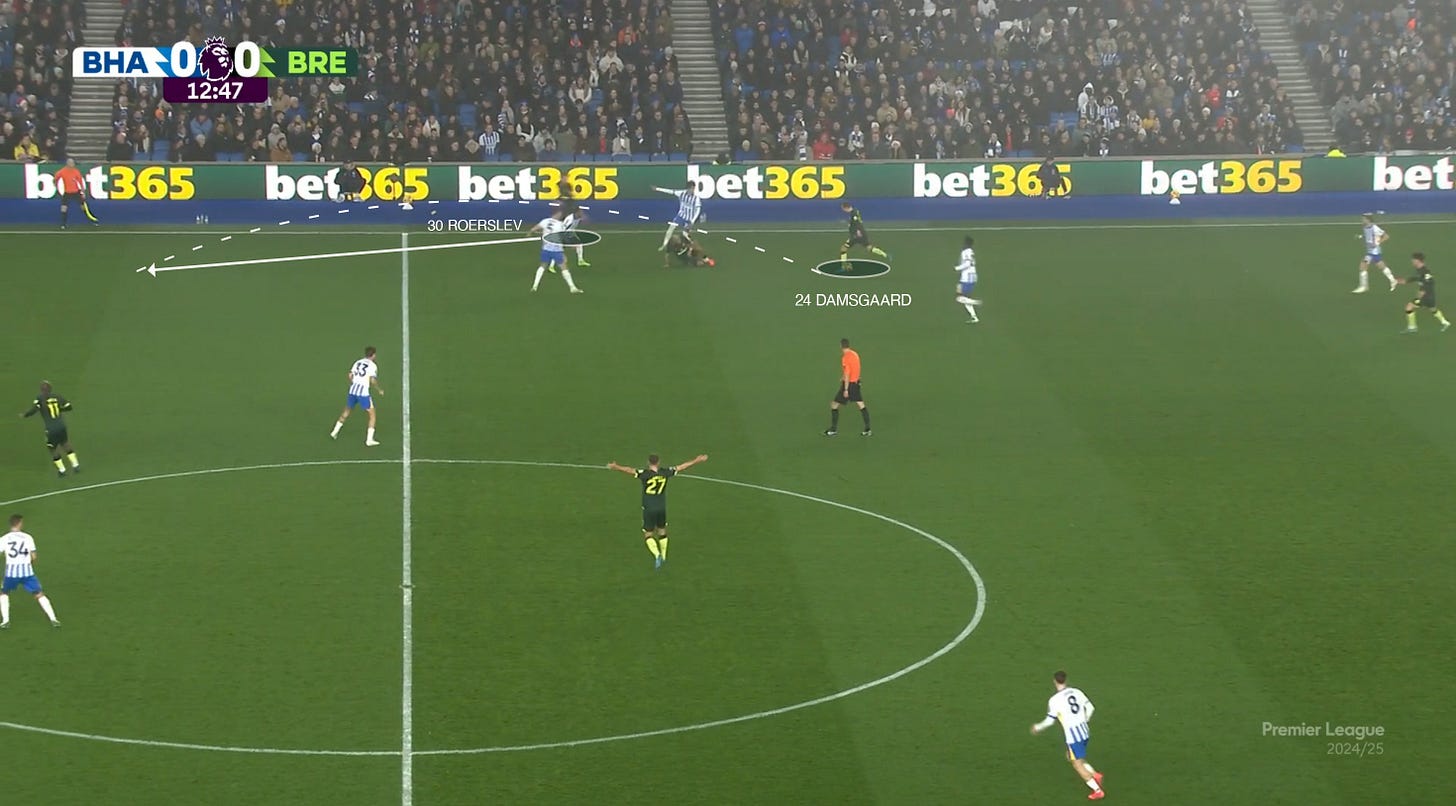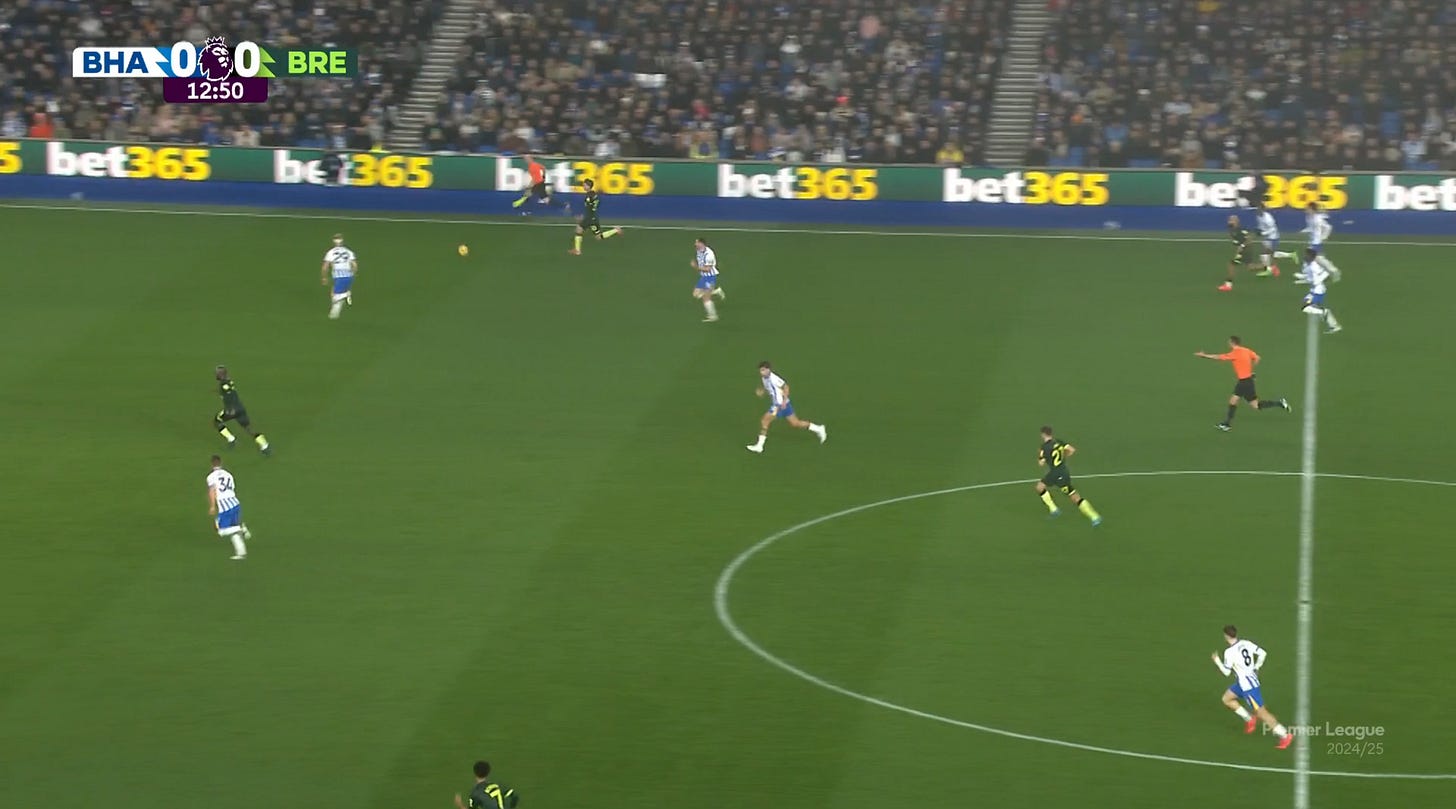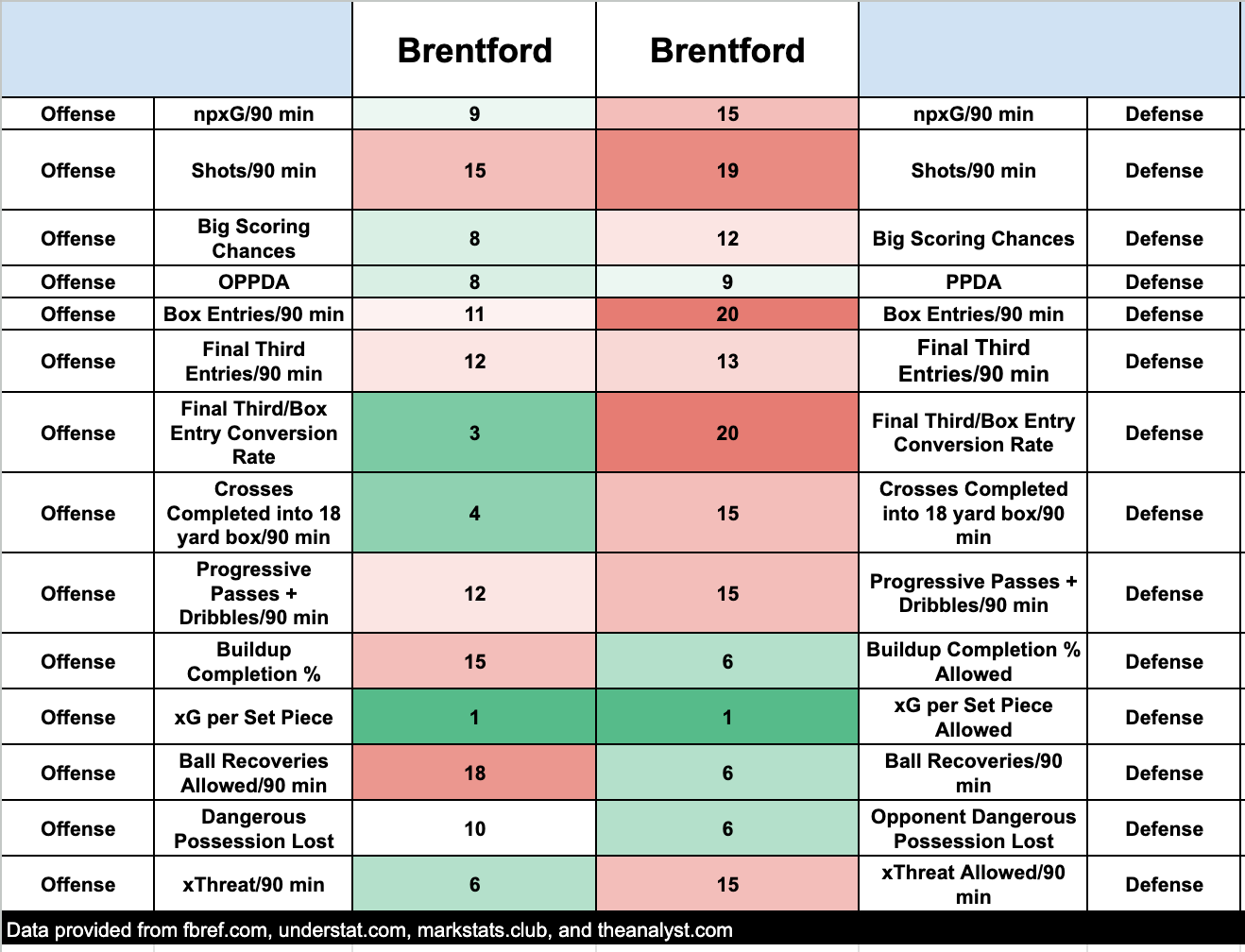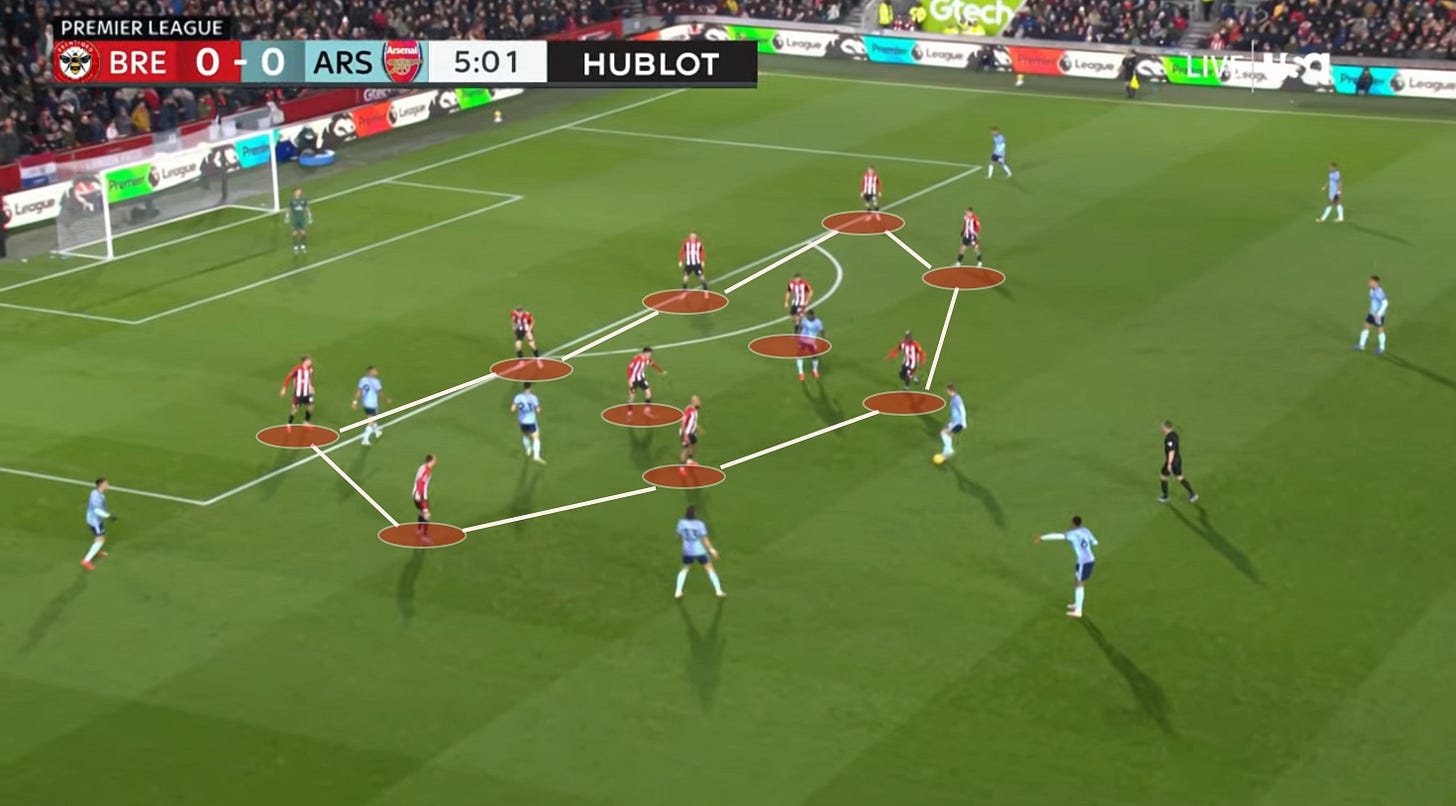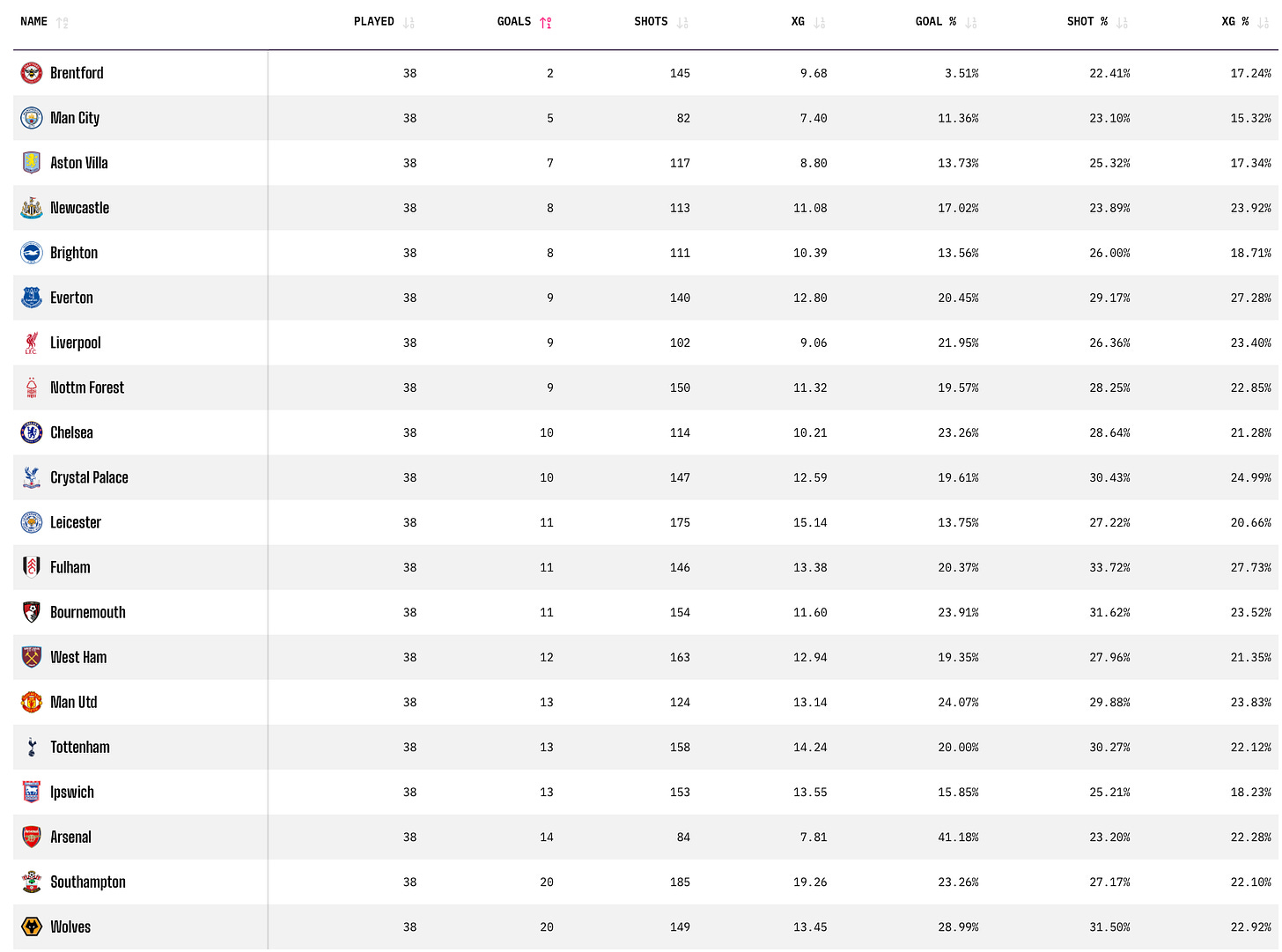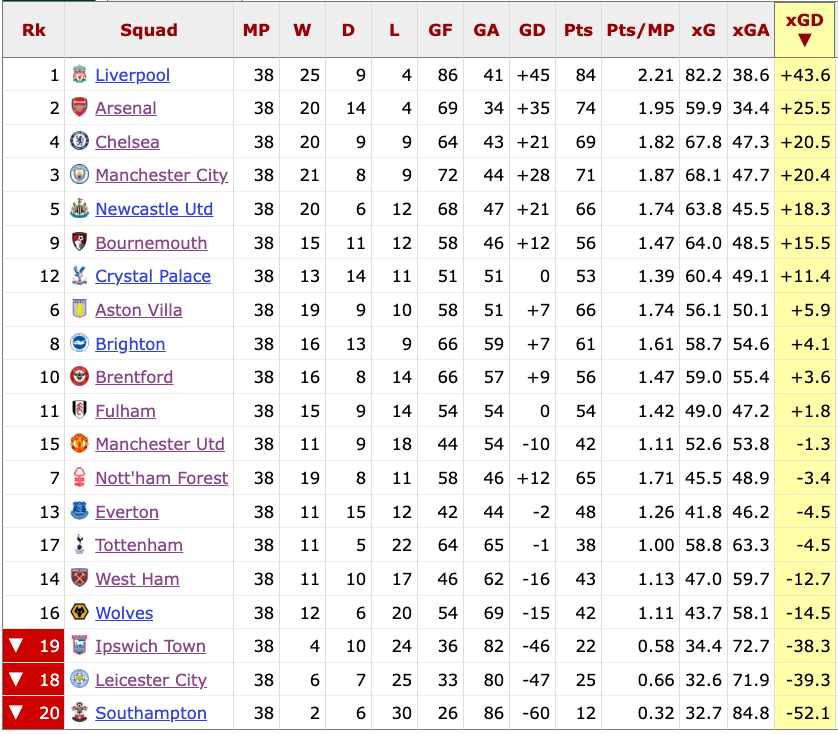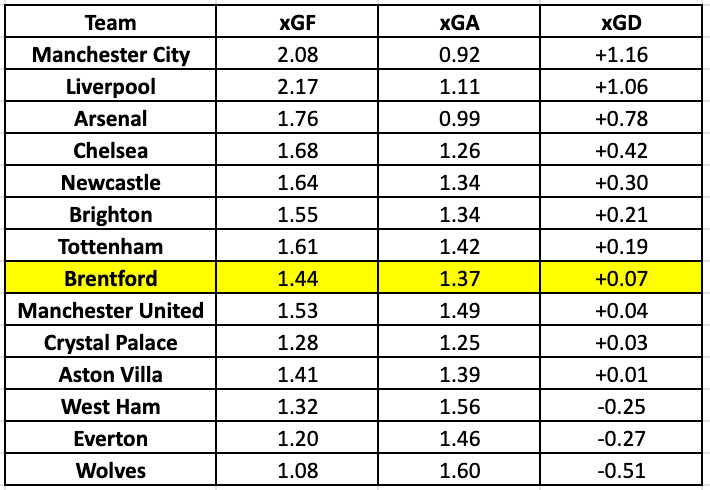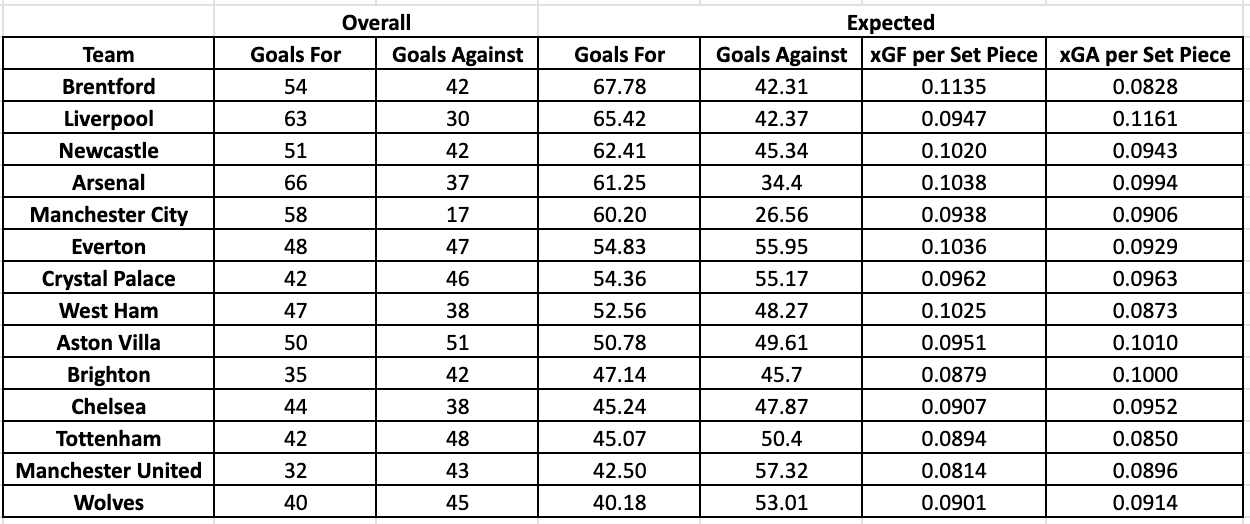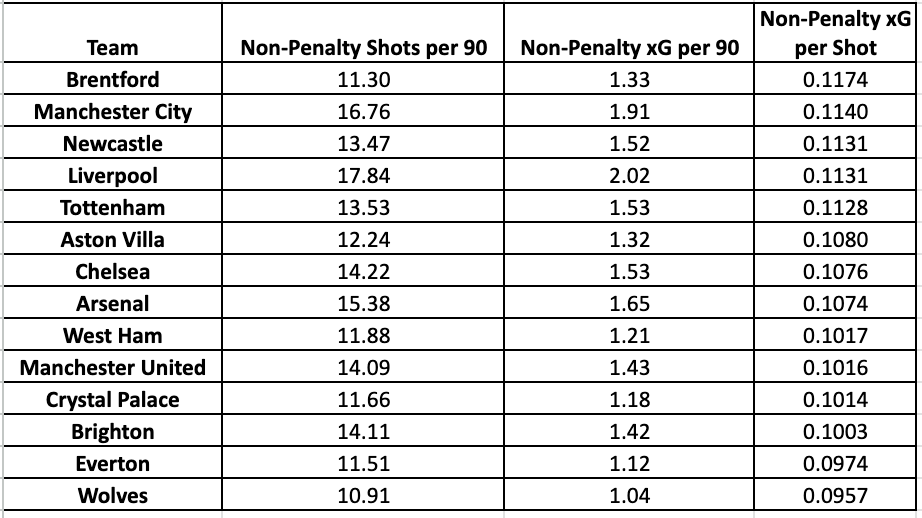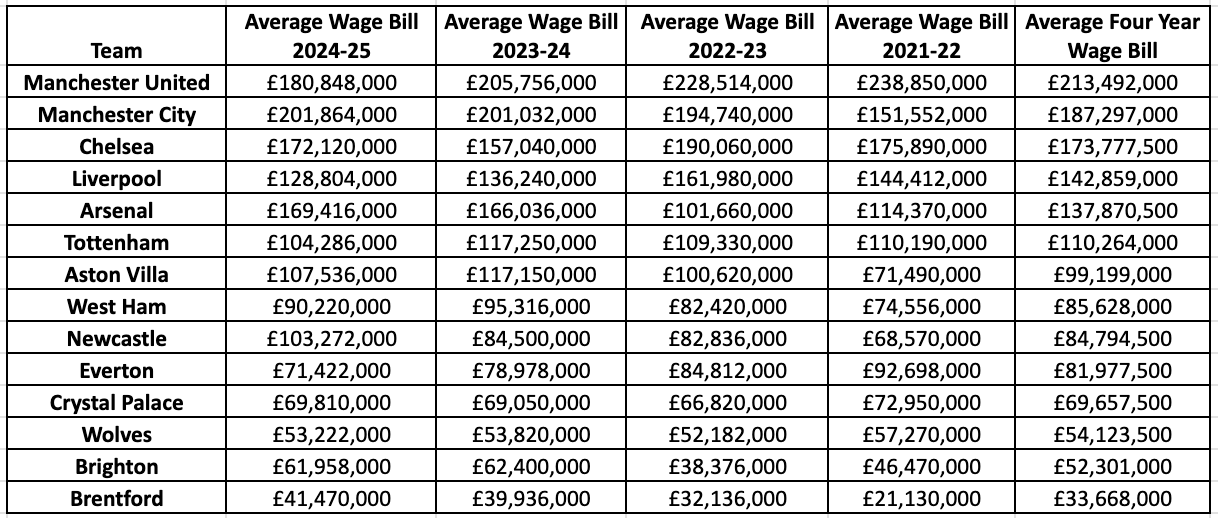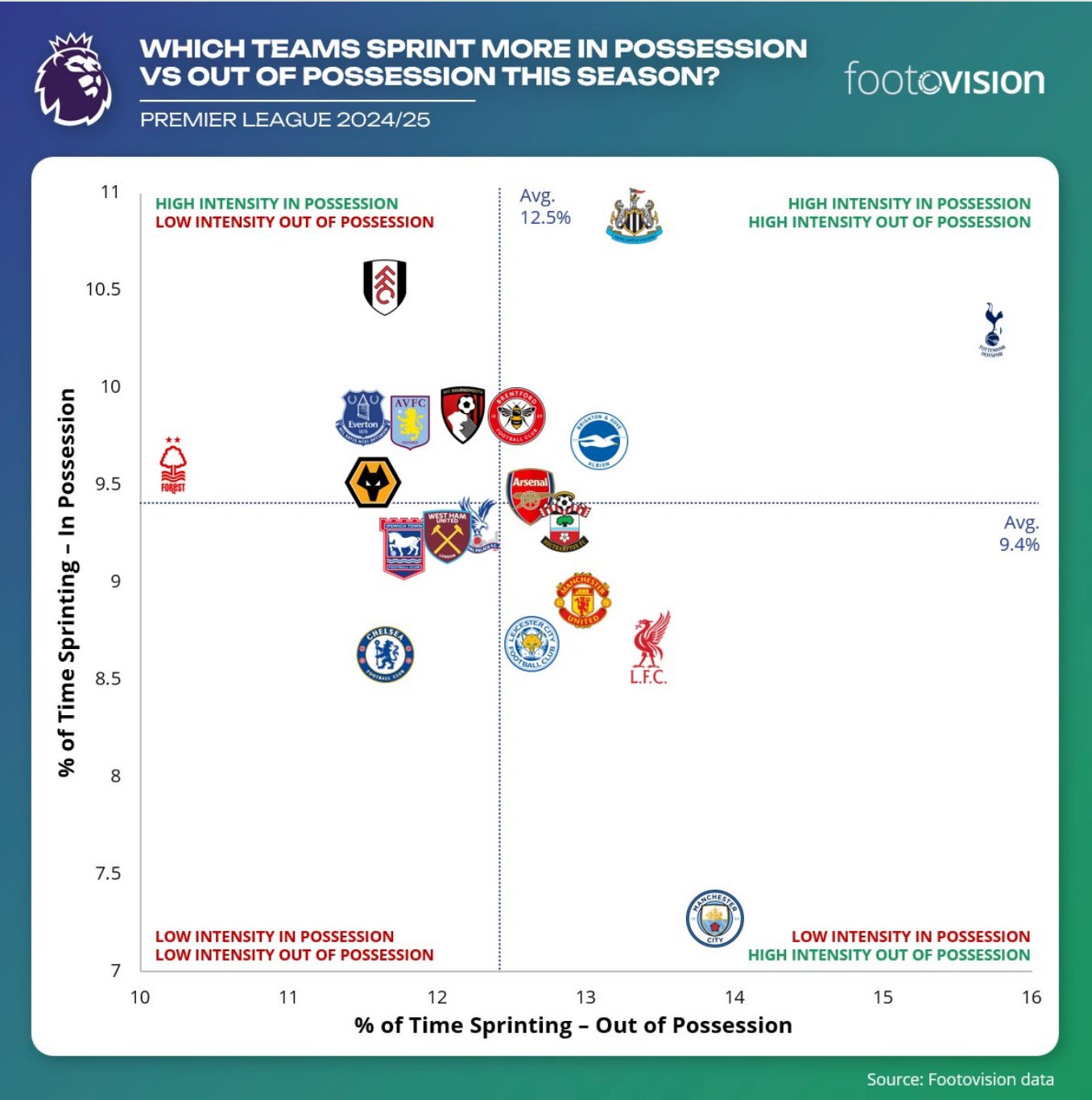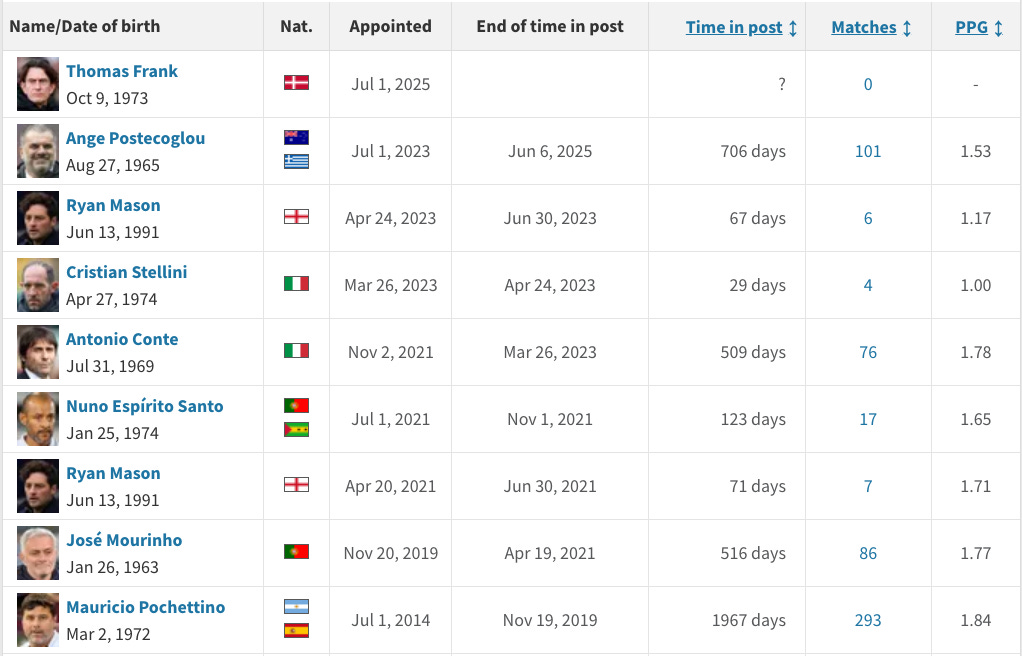Thomas Frank is the perfect manager for Tottenham*
*If Spurs fans and Daniel Levy give him the time he deserves
For those who have known me for a while, you know how much it pains me to say that my bitter rival is hiring one of my favorite managers.
I have been infatuated with Thomas Frank and Brentford for a very long time. Maybe it’s because the former gambler in me that is drawn to Matthew Benham, the former professional bettor that bought his boyhood club and now runs it better than anyone in the Premier League. Maybe it’s Frank’s infectious personality and outstanding coaching that drew me to the Bees.
Whatever it is, this is a sad day for Brentford, but they knew this day was coming for a very long time. There were even whispers last year that Frank was a candidate for the Liverpool job. People have even said that Arne Slot’s appointment was not unanimous, as some in the Liverpool board room wanted Frank. In any case it worked for Liverpool, but the point is Thomas Frank is revered in world football as a top class manager.
Tottenham fans you should be leaping for joy because this is a dream hire for the state of your club. Spurs at it’s current state is a team with a lot of young talent that needs developing. Players like Mikey Moore, Lucas Bergvall, Destiny Udogie, Mathys Tel, Archie Gray, etc. need a manager like Frank that is going to put them in the best possible position to succeed unlike Ange Postecoglou who put them in a position for his system to succeed, whether it was good for them or not.
This article is not going to be a “How is Tottenham going to look under Thomas Frank” because there isn’t a definable answer to that question.
What this article is going to be is a look at Thomas Frank’s time at Brentford and how he elevated them to top half club in the most difficult league in the world on one of the lowest wage bills year after year.
I have loved this man for a very long time and Brentford has become my second favorite club. So this is my tribute to them for making the last four years incredibly enjoyable to watch the right way to build a club in the Premier League.
Promotion
One important thing to remember about Brentford’s promotion to the Premier League is that it was a little delayed. They really should have gone up during the 2019-20 season.
They finished two points behind West Brom for automatic promotion, but they had to try and get promoted by way of the playoff. As you can see, they were miles better than the other three playoff teams Fulham, Cardiff, and Swansea City.
They eventually lost a heartbreaker in extra time to their West London rival Fulham at Wembley.
image via fbref.com
That season Ollie Watkins bagged 25 goals, but Brentford couldn’t keep ahold of him. Aston Villa came calling and Brentford sold him for 33 million pounds, which at the time was a club record fee for the Birmingham club. In the end, it was about a 25 million pound profit for Brentford.
Brentford then went and landed the hottest striker in League One from Peterborough for a little over five million pounds. His name was Ivan Toney.
The next season, Brentford were far and away the best team in the Championship, but luck was not on their side.
image via fbref.com
They spent a good deal of time in the top two that season, but some bad form in February and too many draws down the stretch caused them to drop into third place, meaning they once again had to go by way of the playoff to gain promotion.
They lost their opening leg in the semifinals to Bournemouth, but emphatically came from 1-0 down in the second leg to win 3-2 on aggregate and secure their spot in the final at Wembley.
This time, they left no doubt that they deserved promotion to the Premier League, beating Swansea City 2-0 with both goals coming inside the first 20 minutes.
That season Ivan Toney bagged 31 goals, which was a record at the time before Aleksandar Mitrovic broke that record with 43 the next season.
In the end, promotion took longer than expected, but Brentford were now ready to compete in the Premier League.
2021-22: Laying the Foundation
In their first season in the top flight, Brentford made two purchases: Yoane Wissa for 10 million from Lorient and Kristoffer Ajer from Celtic for 15.7 million.
One important thing to remember about Brentford is they were a possession dominant team in the Championship. During the 2019-20 season the Bees were third in the Championship averaging 57.8% of the ball. During their promotion season they averaged 55.3% possession, which was fifth highest in the league.
In fact, Brentford primarily played a 4-3-3 under Frank in the Championship outside of his first season in charge where he favored a 3-4-3. It wasn’t until April of 2021 that we saw what would become his famous 3-5-2 counter attacking brand of football.
The 3-5-2 proved to be incredibly successful as Brentford continually punched above their weight despite being on the lowest wage bill in the Premier League. Thomas Frank did what was necessary to keep Brentford in the Premier League. In their first season they only averaged a little over 44% of the ball, but it didn’t matter.
Brentford we’re one of the best low block defending teams in the Premier League, but that is not all they did.
As you can see, Brentford finished the season sixth in high turnovers. They used pressing triggers usually when the ball went out wide or backwards to jump into a man to man press, like the one you see here against Manchester United.
Of course most of the time, they would sit back in a 5-3-2 like this and make life incredibly difficult on teams to play through the middle. They allowed a lot of final third entries, but only 25.12% of the time did those final third entries turn into box entries for the opponent. That was the third best mark in the Premier League behind only Antonio Conte’s Tottenham and Rafa Benítez’s Everton.
What Thomas Frank did was make Brentford versatile, which is something Tottenham needs right now.
He didn’t come up to the Premier League with arrogance of Vincent Kompany, Russell Martin, or Kieran McKenna and think that they way Brentford played in the Championship was going to be successful in the most difficult league in the world. He didn’t have the audacity to think that the Bees were going to control possession, build out of the back, and be able to press some of the best teams in the world high up the pitch consistently and effectively.
No, he set Brentford up for their best chance of success. That meant playing very direct, conceding a lot of possession, and defending in a low block for a majority of the time, but it worked.
Because when Brentford did win the ball, they moved the ball quickly forward to hit their opponents on the counter like this:
As you can see below, Brentford was one of the most direct teams in the Premier League in their first season.
image via Opta the Analyst
What we also saw from Brentford in their first season was their emphasis on set pieces, which they would become famous for under Frank.
They ended the season with 15 goals and 17.7 expected goals, which was only bettered by the top two teams in the league: Manchester City and Liverpool.
image via Opta the Analyst
It was a successful first season for Thomas Frank and Brentford, finishing 13th with a -2.7 xGD and pulling off some massive upsets along the way, but more on that later.
2022-23: Stinging the Big Six
Year two was undoubtedly was the most fun season in Thomas Frank’s tenure at Brentford. The Bees became giant killers consistently knocking off big six clubs.
The Bees had a little more money to spend. They signed Keane Lewis Potter from Hull City for 19 million, Aaron Hickey from Bologna for 14.25 million, Mikkel Damsgaard from Sampdoria for 15 million, and Kevin Schade from Freiburg for 25 million.
I say this without any sarcasm. One of the most satisfying matches I have ever watched was Brentford’s 4-0 beatdown of Manchester United to open the 2022-23 season.
This became a theme for Brentford who became a thorn in the side of the “Big Six”, especially at home. In their first two seasons against the “Big Six” at the Brentford Community Stadium (which is now the GTech Stadium) the Bees went 4-5-3, but had a +1.3 expected goal differential.
Something else happened in their second season in the Premier League, Thomas Frank started to build on the foundation they’ve already established. When Brentford were playing teams around their level or below, Frank would line up in their traditional 4-3-3 they played in the Championship.
image via fbref.com
Even when playing out of a 4-3-3 they still averaged less than 50% possession, but that didn’t matter because Frank would set up Brentford tactically to whoever they were facing, not to fit some rigid system. When playing out of a 4-3-3, Brentford only lost three matches and had a +11.9 expected goal differential.
Of course because of the foundation of the 3-5-2 that Frank had established back in the Championship, Brentford could be a low block counter attacking side when they faced the top teams in the Premier League.
This is quite honestly my favorite stat from Brentford during the 2022-23 season and a testament to how great of a manager Thomas Frank is. They played 11 matches where they held 35% or less possession. They didn’t lose a single one of those matches.
image via fbref.com
Brentford kept up their dominance on set pieces, scoring 16 goals and having a 0.15 xG per set piece mark, which was the best in the Premier League during that season.
What Thomas Frank showed during their second season was Brentford was his tactical intelligence. Brentford was able to consistently dominate teams below them in the table setting up in a 4-3-3, while also having their 3-5-2 system available when they played teams above them in the table.
In the end, Brentford finished the season in ninth place and a +7.5 expected goal differential, which was better than Tottenham, Aston Villa, Chelsea, and a lot of other teams. Ivan Toney bagged 20 goals and Brentford were on the upward ascension.
image via fbref.com
2023-24: Everything goes wrong
Life isn’t fair and in a perfect world, Brentford would have continued their rise up the Premier League table and probably would have been playin European football.
However, the 2023-24 season brought more challenges than a single club should ever have to deal with in a single season.
Brentford had the benefit of keeping their entire squad together for the first two seasons and their only notable loss was David Raya to Arsenal. However, they lost Ivan Toney to an 8-month gambling ban to start the season.
The brought in Mark Flekken from Freiburg for 13 million to replace David Raya and also signed Nathaniel Collins from Wolves for 26.5 million.
Brentford won only one of their first nine matches to start the season. They rebounded with three straight wins over Burnley, Chelsea, and West Ham, but then hit a big time injury crisis.
Bryan Mbeumo, Kevin Schade, Aaron Hickey and Rico Henry all were lost to long term injuries. Hickey and Henry were particularly bad losses because they were so crucial to Brentford’s system that was reliant on their fullbacks getting forward to complete crosses into the box. Not only that, but they were both solid defenders at the back.
Brentford had to play pretty much the entire season without both of their starting fullbacks and three of their four best attackers.
That caused them to go through one of the worst runs in club history in the middle of the season and in March, they were only four points ahead of 18th place Luton Town.
image via fbref.com
Because of that injury crisis, Frank had to revert Brentford primarily to their 3-5-2 to make sure they stayed in the Premier League.
To make matters even worse Mark Flekken had a terrible shot stopping season.
image via fbref.com
For most clubs, when they go through a stretch of winning only three matches in a four month time span, the manager usually gets sacked, but Matthew Benham is no idiot. Despite pressure from the outside world, he knew the hand Thomas Frank was dealt. Because of his background in the gambling world and his belief in advanced data, he also knew that the bad results were not as bad as they seemed.
Even with the injury crisis hitting right when Brentford played their toughest stretch of opponents, the Bees still only had a -5.01 non-penalty expected goal differential despite a -17 actual goal differential. They also had 20.2 expected points compared to the 10 points they picked up during that 17 match bad run.
image via understat.com
Thomas Frank’s job was never in danger, nor should it have been. In the end, Brentford finished in 16th place and were never even close to getting relegated.
What is remarkable that even with the injury crisis, losing their star striker for half the season, and only winning three matches for a four month period, Brentford still finished the season with a +2.2 expected goal differential, which was eighth best in the Premier League.
image via fbref.com
2024-25: Evolution of Brentford
Brentford once again spent big in the transfer market. They cashed in big on Ivan Toney who left for Saudi club Al Ahli. The Bees signed Igor Thiago from Club Brugge for 33 million, Sepp van den Berg from Liverpool for 23.6 million, and Fabio Carvalho from Liverpool for 23.4 million.
For the first three years, everyone knew Brentford as a direct team. Even though in 2022-23 they played their 4-3-3 quite often, they still weren’t building out of the back consistently. Per fbref.com, in their first three seasons almost 65% of their goal kicks went long.
That changed this last season, as Frank was trying to build on the foundation they had established. The number of goal kicks that went long dropped to around 50% because Frank knew that Brentford could never truly ascend up the table without being able to play through teams and have some control.
Frank had them building up in a 4-2-4 structure, which usually allowed them to maintain a numerical advantage against the opposition through the first phase of build up because they would often use Flekken as a +1.
What would often happen is Mbuemo, Damsgaard, Wissa, or Schade would drop into the half spaces to pull defenders with them and create space in behind. Here is a good example against Brighton:
This type of versatility is what made Brentford difficult to play against. Per Opta, they had 60 build up attacks compared to 62 direct attacks last season.
Defensively, Brentford tried to become a team that could press opponents high up the pitch more often, but it often left them exposed. This was a choice made by Frank recognizing that Brentford was already a fairly decent transition defense, so committing more players to the press would lead to more goals from danger zone losses.
Brentford finished the season seventh in danger zone losses forced, fifth in high turnovers, and had six goals come directly from high turnovers.
What was amazing about Brentford’s evolution last season is Frank didn’t even play their famous 3-5-2 at all. The Bees primarily played out of a 4-2-3-1 because it’s what suited them best. They had an amazing number 10 in Damsgaard, two wingers with a lot of pace in Schade and Mbeumo, so it made sense for Frank to switch to this formation to get the best out of his team.
That front three of Schade, Mbeumo, and Wissa combined for 50 goals this season and Damsgaard turned into one of the best attacking midfielders in the Premier League supplying 10 assists and had 21 goal creating actions, which was third to only Mohamed Salah and Bakayo Saka.
Even though Brentford’s matches were much higher event last season than the previous three seasons they were still a good low block defending team. Because of the foundation that Frank laid three seasons ago, Brentford were very comfortable sitting in very compact low blocks against some of the top sides in the league.
One thing I truly admired about Frank is he stuck to his roots and never let go of what made Brentford great and like their owner Matthew Benham, Brentford were always looking for an edge. Set pieces remained the biggest edge that Brentford had over every other Premier League team.
This past season, Brentford was the most efficient offensive team and only allowed TWO goal off of set pieces, despite facing 145 shots.
image via Opta the Analyst
There was even a point in the beginning of the season when Brentford scored three goals in three consecutive matches inside the opening minute off of the kickoff. That is not by coincidence either because that is something Thomas Frank had them practice on the training ground.
Brentford for a brief time were potentially looking at a Europa Conference League spot, but they ended up finishing 10th, a second top half finish in four seasons under Frank. Oh, and for the the third consecutive season they had a positive expected goal differential.
image via fbref.com
Farewell Thomas Frank
There are a lot of fun stats from Thomas Frank’s tenure as the Brentford manager.
Of the 14 teams that were in the Premier League the last four seasons, Brentford had the eighth best expected goal differential.
Against the “Big Six” Brentford had the third best expected goal differential behind only Brighton and Newcastle over the last four seasons.
Here is it broken down by season:
data via fbref.com
Over the past four season, nobody created more expected goals off of set pieces than Brentford and nobody defended them better than Thomas Frank’s side:
data via Opta the Analyst
Thomas Frank and Brentford make no secret how big of believers they are in advanced data. Frank is a big believer in expected goals and has pointed out many times that Brentford try to create the highest quality chance possible rather than settling for a low quality chance from outside the box.
Over the last four seasons they had the highest non-penalty xG per shot in the Premier League:
data via fbref.com
You may be sitting there saying, “Yeah that’s all impressive, but they were nothing more than a midtable side.”
What you have to remember is all of these stats have to be put in context because Brentford had by far and away the lowest wage bill over the past four seasons.
data via fbref.com
That means they had a better expected goal differential than Manchester United over a four year period on almost a 10x smaller budget.
What Thomas Frank did was nothing short of remarkable, but I guess the question we have to ask is can he manage at an elite level?
Changes coming to Tottenham
Ange ball is over, which means that there are going to be some growing pains as Tottenham reverts away from his extreme high pressing and build up system.
Tottenham is going to have to learn how to play a mid to low block and are going to have to be more physical. Frank will know that the team he has is not built to win duels consistently when team play direct if Tottenham continues to press the way they were under Ange.
Spurs fullbacks are going to be asked to play more on the wide channels instead of inverting into the middle of the pitch, like they were in Ange’s 2-3-5 build up system. That will be particularly good news for Pedro Porro because he’s an outstanding crosser into the penalty area.
image via fbref.com
Because of the move away from the 2-3-5 build up, Tottenham is going to naturally improve defending in transition. Romero and Van de Ven were often left on islands to defend counter attacks and because Tottenham committed so many players to the attack and the press, it meant they were sprinting at a higher rate than anyone in the Premier League.
image via Footovision on X
What Ange failed to realize is that you cannot ask your team to run this much over the course of a 50+ match season and expect players not to wear down or there not to be injuries. His system may work at an elite level for 2-3 months, but it was never going work for a full season.
Thomas Frank is going to change that to a more measured approach like he did at Brentford.
Tottenham is also going to have to become great on set pieces. Ange didn’t care about set pieces at all, which ended up being part of his demise. It may take some time, but Frank will hire a great set piece coach and will make sure Tottenham has a similar edge that he had at Brentford.
Frank needs time
These changes are not going to happen overnight. They are likely going to take years for Tottenham and Frank to get Spurs to one of England’s elite and competing with the likes of Arsenal, Liverpool, and Manchester City.
Ever since Mauricio Pochettino left Tottenham, Daniel Levy and you fans have not been patient.
You got sacked Nuno Espírito Santo after 10 matches, you ran two of the greatest managers of this generation: Antonio Conte and Jose Mourinho out of town giving them each only 18 months despite having the same points per match as Pochettino.
image via transfermarkt.com
Thomas Frank needs at least three years to get Tottenham up to one of England’s elite. Spurs have made it a priority to purchase young talent in the transfer market in recent years and now they have the coach that has been proven to develop it. The question is will Daniel Levy and you the fans give him the time he needs? If he goes through a bad run like the one Brentford experienced in the 2023-24 season will you give him grace?
You have an elite manager once again Tottenham, give him the time he deserves and don’t make the same mistake for a third time.



